What are your chances of acceptance?
Calculate for all schools, your chance of acceptance.

Your chancing factors
Extracurriculars.
Guide to the TOK Essay
What’s covered:.
- What is Theory of Knowledge (TOK)?
- What is the Theory of Knowledge Essay?
How is the Theory of Knowledge Essay Scored?
How to structure your theory of knowledge essay.
The International Baccalaureate Diploma Programme (IB/IBDP) is a rigorous and rewarding internationally based educational program that offers courses in numerous studies, from humanities to chemistry. Students take part in a two-year curriculum that includes external examinations, internal assessments, research papers and community service hours. Essentially, students will have to do a bit of everything, especially with IB’s core, which is CAS, TOK, and the extended essay (EE). Understanding how TOK, IB’s flagship class, is assessed with its essay is important to success in the course overall.
What is Theory Of Knowledge (TOK)?
Theory of Knowledge is IB’s way of introducing a more intuitive way of thinking into classrooms. TOK is at its surface as simple as it sounds: you essentially learn the “what” and “why” of how we learn and understand knowledge. In order to assess students of their skills in TOK, IB uses an essay and a presentation. The essay makes up 67% of your total TOK score, making it the most important task to focus on for getting a high score.
What is the Theory Of Knowledge Essay?
The TOK essay is a 1600 word essay written about topics usually given to students from their teachers from a list of numerous options. It is an essay that promotes arguments and counterarguments for the topic at hand. Understanding your ways of knowing (WOKs) and areas of knowledge (AOKs) is extremely crucial before you even start choosing a topic to write on, as your essay will revolve around and structure itself based on these two concepts. Being able to demonstrate higher-level thinking and using examples to solidify the points you make in your essay is also important. Additionally, you’ll need to reference every source of information that you use, since that is something examiners look for as well.
As said earlier, 67% of your grade is from the essay, and your overall TOK score receives a letter grade using a calculated score out of thirty. Your essay score and presentation score are each out of ten. The grades for your TOK presentation and essay are determined by sending material to the board of IB, from which they designate a grader/examiner to read your essay and grade based on a rubric that determines the level of knowledge you exhibit in your writing.
The following formula should better explain how to find your TOK grade.
(presentation score) + (essay score * 2) = overall score out of 30
The grade boundaries out of 30 that determine your letter grade can vary each year so checking in with your school for the most recent ones is the best course of action, but an example set would be like this:
Once you have a letter grade for IB, your extended essay, which is another part of the core, is also included into a larger grading schema to calculate your core score, which is three additional points required to complete and earn the diploma. The following table details this grade further:
Doing well in the core is important to passing IB and getting three points out of the total 45 attainable points.
There’s a trick that most IB students use in writing the TOK essay, and it boils down to understanding four key components of learning:
- Content : Understanding knowledge issues
- Clarity : Structuring your essay in a legible and clear/easy to read manner
- Creativity : Using your personal ways of thinking and applications of knowledge specific to your understanding of the knowledge issue
- Critical Thinking : Using a counter argument for every argument you have to analyze your own claims constantly
Dividing your actual essay into three main chunks helps, starting with an introduction. Your introduction should be where you state your knowledge question, the central point of your essay, and you should make use of jargon specific to the concept. As the basis of your essay, the introduction should be where you form claims and counterclaims that either support or challenge the knowledge question through heavy analysis and evaluation.
The body of the essay follows the introduction, and it is where most of the conceptual analysis of your knowledge question takes place. Every argument and its counterargument should have a dedicated paragraph of its own, and make sure to not jump back and forth too much throughout the essay. to avoid creating messy transitions for the reader and potentially harming your score. Understanding the essay from the reader’s point of view is important, as it will help you better understand how to structure the body of your essay.
A conclusion in the TOK essay is mainly for finding closure among the numerous arguments that have been taking place thus far in the essay. Make sure to summarize but not repeat previous information entirely to refresh the reader. A conclusion should essentially loop back to the beginning of the essay, the knowledge question. The knowledge question’s answer should be the conclusion and the stopping point of the essay, and by now the answer you provide should be backed by paragraphs of supporting claims and counterclaims. If done right, concluding the essay can be how you earn most of your points.
Start Early
Starting early is an obvious and effective advantage to students. Aside from TOK, let alone the presentation, IB has substantial work that requires focus and allocated time dedicated to it, such as external examinations and the extended essay. These tasks are equally as important as the TOK essay, so starting your outlining, drafting or even just planning early will set you up for success.
Send Your Drafts to Your Teacher
Your TOK teacher is a great resource for drafting essays and making edits to perfect your final product. Making use of time outside of the classroom to catch your teacher for a quick review of your essay could be a bigger advantage than you realize. Making use of an outside perspective is essential to forming a great essay.
While your final IB grade isn’t as important as you’d think regarding college admissions, understanding how to pass TOK and using the lifelong practices you’ll learn in the class is even more important. TOK creates students who think outside conventional methods, making them excellent candidates in the eyes of college admissions offices. Taking TOK and showing proof of understanding it as well as capability of academic rigor is what colleges are looking for. For more information on how your chances of college admissions might look, use CollegeVine’s admissions calculator !
Related CollegeVine Blog Posts


IB TOK Essay Structure in Detail
Theory of Knowledge is an interdisciplinary field of study that focuses on understanding the different ways of knowing and how our knowledge is acquired, developed and used. It involves exploring the connections between different disciplines, such as the sciences, humanities, mathematics, and the arts, and recognizing the complexities of real-world problems and issues. Through TOK, students are able to gain a deeper understanding of the world around them, as well as develop their critical thinking skills.
TOK helps people understand the links between different disciplines, allowing them to see a broader perspective on the world. By equipping students with the tools to think critically, TOK prepares them for meaningful dialogue about complex issues. Additionally, it serves as a valuable way for students to assess and evaluate their own knowledge and beliefs, as well as question and challenge the knowledge of others. In essence, TOK encourages exploration of the different ways of knowing and understanding the world.
For teachers, understanding the importance of TOK can help to create more effective learning environments. By introducing and discussing different theories and perspectives, teachers can provoke deeper exploration and thought, which can help to ground students’ understanding and open up new sources of knowledge. Moreover, introducing TOK in the classroom can develop students’ ability to think critically, allowing them to form logical arguments and see the connection between different areas of knowledge.
To sum up, Theory of Knowledge is an interdisciplinary field of study that encourages exploration of the different ways of knowing and understanding the world. It provides students with the skills to think critically and examine the complexities of real-world issues. Additionally, it is a useful tool for teachers to help develop students’ abilities to think critically and explore different perspectives. Now, let’s take a closer look at the TOK essay structure.
🎓 Struggling with your IB TOK Essay? Look no further! 🎓 Introducing the ultimate solution to your IB TOK essay writing needs! Our dedicated team of expert writers is ready to craft an impeccable essay just for you. 💯 🌟 Here's why you should choose our TOK Essay Writing Service : 🔹 Expertise: Our writers have extensive experience in writing IB papers and excel in crafting top-notch essays tailored to your needs. 🔹 Familiarity with Criteria: We know the IB criterium inside-out, ensuring your essay meets all the requirements and achieves the highest possible score. 🔹 Human Touch: Unlike other services, our writers do NOT use CHAT-GPT! Each paper is meticulously written by a human, guaranteeing a unique and personalized touch to your essay. 🔹 Confidentiality: Your privacy is our priority. We assure you that our service is 100% confidential, so you can trust us with your TOK essay without any worry. Don't miss the opportunity to impress your teachers and achieve your academic goals! 🎉

Outline of the TOK Essay Structure
The International Baccalaureate Theory of Knowledge essay is a 750 to 1600 word requirement on the student’s knowledge of the world, and how they analyze and evaluate it. The TOK essay structure is designed to help students express their ideas in an organized, concise and effective way.
The TOK essay has a distinct structure that should be followed throughout the paper. The basic structure includes an introduction, body paragraphs, and a conclusion. Each of these parts should be a separate section within the outline and should include specific points.
The introduction should clearly define the topic and provide an overview of the essay’s purpose. It should also introduce the three Are of Knowledge (AOKs) that are relevant to this essay and describe how they will be connected in the essay.
Following the introduction, each body paragraph should contain an argument, evidence to support it and then a conclusion that ties back to the main argument. Body paragraphs should cover each AOK mentioned in the introduction, with the arguments relating to each AOK. In addition, body paragraphs should state how each AOK is related to each other.
Finally, the conclusion should summarize all of the arguments made in the body of the essay and suggest ways to further explore the topics presented. This should be done with a focus on how these areas of knowledge intersect to create a more holistic understanding of the world.
By following this structure, students can ensure that their TOK essay is well organized and effectively communicates their ideas. Additionally, it will help students stay on track with the essay’s requirements and ensure that their essay meets the grading criteria.
Overview of the Grading Criteria for TOK Essays
The Theory of Knowledge (TOK) essay is one of the most important components in the International Baccalaureate (IB) Diploma Programme, and it carries a significant chunk of the overall score. Writing a compelling TOK essay requires much more than simply understanding the topics and reading about them. If you’re hoping to get an excellent grade, it’s crucial to understand how your work will be assessed.
Knowledge Questions and their Relevance
The key part of any TOK essay is the knowledge questions – these need to be answered directly with a clear focus and relevance to the question. A well-structured essay will address the question from various points of view and as far as possible. It should also provide appropriate examples and evidence for your points, any counterclaims or alternative viewpoints and your own knowledge experiences.
Organization and Structure
The essay should be logically organized and structured with clearly defined sections. Every section needs to have a purpose and its own independent set of arguments. It should also include citations and sources where appropriate, as well as personal knowledge experiences. The overall essay should be written in an academic style, consistent with the rest of the TOK curriculum.
Reasoning and Argumentation
Make sure you use complex reasoning to develop a strong argument that supports your main point in the essay. To do this effectively, you’ll need to reference other sources, research documents and your own personal experiences. Your essay should also discuss the validity and reliability of the sources used, and whether they are relevant to the particular knowledge issue being discussed.
Grammar and Language
Finally, the essay should be written using a formal language, grammar and punctuation. When writing the essay, it’s important to keep in mind that TOK is designed to be studied from an international perspective. Grammatical accuracy, clarity and consistency in language will help to make sure your points come across effectively, and allow you to get the best score.
Understanding the grading criteria that are used to assess TOK essays is crucial if you want to earn a high grade. Make sure you pay close attention to each of the criteria discussed here and ensure your essay covers them all. This will help you get the most out of your TOK essay and ensure you reach the grade you deserve.
Step-by-step Guide to Writing a TOK Essay
Writing a Theory of Knowledge essay can be a daunting task, but it doesn’t have to be. By breaking the essay writing process down into small, manageable steps, you can make it easier and less stressful. This step-by-step guide shows how to use the Areas of Knowledge (AOKs) to write an effective TOK essay.
Step One: Brainstorm
The best way to start your TOK essay is to brainstorm ideas. Take some time to think about your experiences and create a list of potential topics that could be developed into an essay. Don’t worry if the ideas don’t relate directly to the question – this is just for brainstorming purposes.
Step Two: Research
Once you have an idea of what kind of essay you are going to write, it is time to do some research. Look into the different AOKs and try to pinpoint which ones are relevant to your topic. This should give you a basic knowledge of the topic and the various perspectives that need to be considered in the essay.
Step Three: Outline
Now that you have researched the topic, it is time to create an outline. Make sure to include the main points you want to cover in the essay, as well as any counterarguments that may be presented. Also, include any evidence or examples that will support your argument. The outline should be as detailed as possible to ensure that you stay on track when writing the essay.
Step Four: Writing
Now that you have completed your research and created an outline, it’s time to start writing. Remember to remain focused on your main argument and use evidence from your research to support your claims. Be sure to explain how each AOK applies to the essay, and how they interact with each other. Consider how the different perspectives can be combined to form a complex argument.
Step Five: Proofreading and Editing
Once you have completed the essay, it is important to proofread and edit. Check for grammar and spelling mistakes, and make sure your argument is well structured and logically consistent. Also, make sure to address any counterarguments that you outlined in the essay. Finally, consider adding any new information or ideas that you discovered during the writing process.
By following these steps and using the AOKs as a guide, you can be sure to craft a high-quality TOK essay that meets the assessment criteria. With the right amount of effort and dedication, you can succeed in writing an effective TOK essay.
Using Personal Knowledge Experiences in TOK Essays
The International Baccalaureate or IB TOK essay is an important component of the student’s diploma. When selecting a TOK essay topic and writing a response, it is essential to include personal knowledge experiences.
A student’s individual experiences are just as important as the facts and theories presented in an essay. Personal knowledge experiences help to bring life to the paper and make it stand out from the rest. For example, if you are writing about the concept of truth and objectivity, your personal experience may help to provide insight into how different perspectives could be interpreted.
When using personal knowledge experiences in your TOK essay , it is important to consider how these experiences could contribute positively to your argument. Ask yourself questions like ‘how has this experience informed my viewpoint?’. By reflecting on your experiences, you can demonstrate your understanding of the TOK essay question and explain why your view is important.
In addition to reflecting on relevant prior experiences, you should also think about any current research or experiences you can draw upon. If there is an opportunity to conduct interviews or visit a local museum, these activities can be used to support your argument.
It is important to remember that the personal knowledge experiences you choose should not take away from the overall structure of the paper. These experiences should be used to reinforce the points you have made and to supplement your argument. Make sure to check your essay for any grammatical errors or typos and ensure that your points are backed up by logical reasoning.
Ultimately, using personal knowledge experiences in your TOK essay can help to differentiate it from other papers. It is a great way to demonstrate your understanding of the subject and your ability to present evidence to support your views.
Tips on Thinking Critically for TOK Essays
Writing a successful Theory of Knowledge (TOK) essay requires the ability to think critically and develop strong arguments. Critical thinking can be difficult and complex, so here are some tips to help:
- Gather evidence: Any successful argument needs evidence and facts to back it up. Research your topic thoroughly and make sure you have solid evidence to support your argument.
- Analyze evidence: Consider the source of the evidence and evaluate it objectively. Does this information support or contradict your argument?
- Be creative: Think outside the box when constructing your argument. Analyze different perspectives and viewpoints to gain a deeper understanding of your topic.
- Think logically: Once you have gathered all your evidence, it’s time to build an argument. Structure your argument in a logical way, leading from one point to another.
- Question assumptions: It is important to be open-minded and question any assumptions you may have about the topic. Reflect and challenge ideas to create an argument with diverse points of view.
- Anticipate counterclaims: Not all readers will agree with your argument, so be prepared to address objections or counterarguments. Showing how you thoughtfully considered the other perspective demonstrates critical thinking skills.
By following these tips, you will be able to submit a high quality TOK essay with a carefully crafted argument. Remember that clear and logical thinking is essential for a successful essay.
Creating a TOK Essay Outline
Creating an outline for a Theory of Knowledge essay can be challenging, but it will help you make sure your essay is structured clearly and logically. An outline allows you to break down your essay into sections that are easy to understand and follow. This helps to ensure that your essay takes a clear path from the introduction to the conclusion.
When creating your TOK essay outline, there are a few key steps you should take to ensure you are producing an effective outline. The first step is to brainstorm what topics and ideas you want to include in your essay. Once you have identified the topics you want to include in your essay, it is important to determine how they fit together and how you want to present them. This helps you to come up with a basic structure for your essay.
Once you have a structure in place, you should move on to developing more specific subtopics. These topics will form the basis of the main body of your essay, and help you to further develop each point you’re making. This is a crucial step in creating a TOK essay outline, as it helps to ensure that all of your ideas are clearly expressed and logically organized.
The final step in creating your TOK essay outline is to develop an effective thesis statement. This statement will serve as the main focus of your essay, and should encapsulate the main point that you are trying to make. Once you have developed a thesis statement, you will be able to start putting together the outline of your essay in a logical and organized manner.
Creating a TOK essay outline is a great way to ensure your essay is well-structured and logically organized. Following the steps outlined above will help you create an effective outline that ensures your essay is organized in a clear, logical manner.
Using Language Effectively to Support Claims in a TOK Essay
Using language effectively is an important part of crafting a quality Theory of Knowledge (TOK) essay. To ensure that your essays are thought-provoking and well-structured, you should use language to support claims and strengthen arguments.
Recapping Your Key Ideas
When writing a TOK essay, it is important to restate your key points throughout the text. This helps to remind the reader of the main argument and highlights the evidence used to support it. Using simple language to effectively explain the idea again ensures that your ideas are not lost within the essay.
Using Strong Vocabulary
To make sure that your essay stands out, it’s a good idea to use strong vocabulary and varied sentence structures. This can help to emphasize a point and add detail to your essay. However, it is important to be aware of using too much “big” words; using language that is too complex can confuse your reader and obscure the point you are trying to make.
Making Connections
Connecting ideas together is another key element when writing an effective TOK essay. Using language to make connections between concepts, personal knowledge experiences and evidence can help show how each point supports the overall argument.
Making Assumptions Explicit
It is important to remember that the reader may not necessarily be familiar with the same knowledge as you. Making assumptions explicit means that you explain the source of your idea or opinion and why you believe it is valid. This also allows you to explore different perspectives on the topic.
Summarizing Your Argument
In conclusion, you should use language effectively in your TOK essay to ensure that your arguments are clear and concise. Repeating the main points, using strong vocabulary and connecting ideas together will make your argument more compelling. Additionally, making assumptions explicit and summarizing your argument at the end of the essay will help the reader understand and appreciate your unique viewpoint on the topic.
Introduction to TOK Essay Assessment Criteria
Writing a Theory of Knowledge (TOK) essay can be a challenging task for students. It requires careful thought, research, and organization – not only of the facts and arguments but also of the assessment criteria.
In TOK essays, students are assessed on their ability to think analytically and critically. The International Baccalaureate (IB) has developed a set of criteria that are used to evaluate each TOK essay. It’s important for students to have a good understanding of each of these criteria so they know what to focus on when writing their essay.
The Criteria
The TOK essay assessment criteria are split into two categories: C & P (communicate and present) and A & R (argument and reason).
- Communication and Presentation (C&P): This criterion evaluates a student’s ability to communicate their ideas effectively and demonstrate a clear understanding of the topic. Points awarded for this criteria are based on how well the essay is structured, use of evidence, clarity of language, and strength of argument.
- Argument and Reasoning (A&R): This criterion assesses a student’s ability to apply logic and rational thinking to their essay. Points awarded for this criterion depend on the student’s capacity to use evidence to support their argument, make well-thought-out conclusions, and reference counterclaims (where relevant).
Advice For Meeting These Criteria
When writing your TOK essay, it is important to follow the criteria carefully and make sure that you address all of the points. Here are some tips to help you do this:
- Read the question correctly and make sure you understand what it is asking. Analyze the keywords and think about how you can use them in your essay.
- Research relevant AOKs (Areas of Knowledge) and create an outline to plan your essay. Make sure all of your arguments are supported by logical reasoning, evidence, and examples.
- If relevant, think of counterclaims and provide effective refutations to them.
- Write your essay using clear language and organizing your thoughts in a way that is easy to read and understand.
- Proofread your essay several times and make sure there are no spelling or grammar mistakes.
- Write a strong conclusion that ties together all of your arguments and summarizes your main points.
By following these steps, you should be able to create an essay that meets the TOK essay assessment criteria and earns you the grade you deserve!
The Role of Counterclaims in a TOK Essay
When attempting to answer a TOK essay question, it is essential that you consider various counterarguments and opposing viewpoints. These counterclaims can help in developing a TOK essay that is well-reasoned, logical and backed up with evidence. Looking at counterclaims can also help to create a balanced argument and give your TOK essay added depth.
Including counterclaims in your TOK essay can help you to assess the strengths and weaknesses of an argument. Through considering opposing points of view, you can develop ideas that are less biased and more convincing. For example, if you are discussing the impact of technology on modern life, perhaps you could argue that technology has had both positive and negative implications for society. This can add an interesting layer to your essay and make it stand out from the crowd.
When introducing counterclaims into your TOK essay, it is important to make sure that your arguments remain impartial. Rather than simply stating that one point of view is wrong, it is better to present both sides of the argument and discuss their merits or drawbacks. It is also a good idea to use evidence or personal experiences to back up your argument.
When addressing counterclaims, be sure to include any opposing opinions on the topic, as well as potential solutions should a conflict arise. For example, if you are discussing a particular ethical dilemma, it is important to present both sides of the argument and explore any potential solutions or proposed compromises.
All in all, considering counterclaims and their potential implications is a vital part of constructing an effective TOK essay. Through engaging with opposing viewpoints and exploring possible solutions, you can produce an argument that is thought-provoking, balanced and convincing.
Summary of key points for crafting a high-scoring TOK essay
To craft a high-scoring Theory of Knowledge essay that is structurally sound, there are a few key points to consider. To begin with, it is important to have an in-depth understanding of the TOK essay structure, as well as its grading criteria. Once you understand the structure and criteria for a TOK essay, you must ensure that your essay includes the appropriate Areas of Knowledge. You should use personal knowledge experiences to answer TOK essay questions and make sure that you think critically when forming arguments.
It is also necessary to form a clear TOK essay outline, as this allows the essay to be structured properly. This means that, when writing the actual essay, it is important to use language effectively to support claims and arguments and also to include counterclaims. Finally, it is essential to meet the TOK assessment criteria set out by the instructor, as these criteria will be used to determine your grade.
In summary, to craft a high-scoring TOK essay that is structurally sound, it is important to understand the TOK essay structure, the grading criteria, and how to use the AOKs within the essay structure. Additionally, using personal knowledge experiences, thinking critically and creating a clear outline can help to ensure that the essay is written correctly. Furthermore, the essay should use correct language, include counterclaims, and meet all assessment criteria.

Nick Radlinsky
Nick Radlinsky is a devoted educator, marketing specialist, and management expert with more than 15 years of experience in the education sector. After obtaining his business degree in 2016, Nick embarked on a quest to achieve his PhD, driven by his commitment to enhancing education for students worldwide. His vast experience, starting in 2008, has established him as a reputable authority in the field.
Nick's article, featured in Routledge's " Entrepreneurship in Central and Eastern Europe: Development through Internationalization ," highlights his sharp insights and unwavering dedication to advancing the educational landscape. Inspired by his personal motto, "Make education better," Nick's mission is to streamline students' lives and foster efficient learning. His inventive ideas and leadership have contributed to the transformation of numerous educational experiences, distinguishing him as a true innovator in his field.

IB Internal Assessment Rubric and Grading Criteria
The IB IA rubric is carefully structured to assess students’ understanding, skills and application of subject matter in a nuanced and comprehensive manner. Each subject rubric, whether for sciences such as Biology and Chemistry, humanities such as History and Psychology, or Mathematics, emphasizes a unique set of criteria tailored to assess specific competencies and skills.

Visual Arts IA Topics: The Best Topic Ideas
In the vast world of art, the possibilities for your IA topic are nearly limitless. Yet, this abundance of choice can sometimes feel overwhelming. Whether you’re drawn to traditional painting techniques, the avant-garde movements of the 20th century, or the intersection of digital media and art, your chosen topic should ignite a spark of curiosity and passion within you.

Theatre IA Topics: SL and HL Topic Ideas
Choosing the right topic for IA in the IB Theatre course is a crucial step that significantly influences your research process and overall learning experience. Whether in the Standard Level or Higher Level track, selecting your topic requires careful thought and consideration, aiming to balance personal interest with academic rigor. This guide offers a rich array of topic ideas and research questions to spark your creativity and intellectual curiosity in the vast world of theatre.

Music IA Topics for SL and HL Students
When selecting a topic for your IB Music Internal Assessment, both SL and HL students face a unique set of challenges and opportunities. As a seasoned IB educator with years of experience guiding students through this process, I’ve come to recognize the importance of choosing a topic that aligns with the IB criteria and resonates with your musical interests and strengths.

Film IA Topics: SL and HL Topic Ideas
Choosing a topic for your IB Film Internal Assessment (IA) can be exciting and daunting. Whether you’re enrolled in the Standard Level (SL) or Higher Level (HL), the key is to select an option that not only intrigues you but also meets the criteria of the IB Film course. In this article, we dig into a variety of creative and thought-provoking ideas for both SL and HL Film IA topics.

IB Dance IA Topics: SL and HL Ideas
When it comes to the IB Dance Internal Assessment (IA), students face the exciting challenge of exploring a topic that resonates with their interests and meets the academic rigor of the IB curriculum. I’ve seen how choosing the right topic can set the stage for an enriching learning experience. In this article, I’m thrilled to share some engaging topic ideas for both SL and HL students aimed at sparking creativity and intellectual curiosity.
© 2023 I Bstudenthelp.com. This website is owned and operated by Udeepi OU Harju maakond, Tallinn, Lasnamäe linnaosa, Sepapaja tn 6, 15551. Disclaimer : Services we provide are only to assist the buyer like a guideline to complete any kind of writing assignment. Privacy Policy Terms and Conditions Cookie Policy Revision Policy Refund Policy
A beginners guide to acing the TOK essay

A Beginners Guide to Acing the TOK Essay
Here is a complete guide to help you understand – and ace – the TOK essay.
TOK – The Theory of Knowledge Essay
The Theory of Knowledge is a theoretical knowledge based essay.
Students are required to demonstrate their ability to compare and contrast eight areas of knowledge.
The knowledge issue in the title of the essay you’ll be asked to write often relates to one or two of the eight areas.
It will likely be the examination of possible conflicts or problems between them.
This is expressed through reasoning, language, and perception.
What is the IB Diploma?
The International Baccalaureate Diploma Programme is an internally based educational program. It is a rigorous and rewarding course that covers multiple areas of study from humanities to sciences.
Students partake in a two year curriculum that includes internal assessments, research essays, community service hours, and external examinations. This ensures that the programme is well-rounded. TOK is part of the core of IB , which also includes CAS and the Extended Essay .
Why the Paper is Important
The TOK essay is part of the International Baccalaureate Diploma. It is compulsory for all students.
It assessed four key areas, including:
Understanding
Connecting two relevant topics in a way that shows a deep understanding of these knowledge areas.
Perspective
Students show their independent thinking by exploring at least two different perspectives with supporting examples for each.
Demonstrating depth and insight by presenting arguments with justifications, as well as showing the implications of each.
A well structured essay that is factually accurate, well explained, and referenced.
Since this is such an important part of attaining your IB diploma, it is important that you begin early. Utilise all of the time you can to create a strong essay. This will not only help you pass the course well, but it can also be used as part of your portfolio.
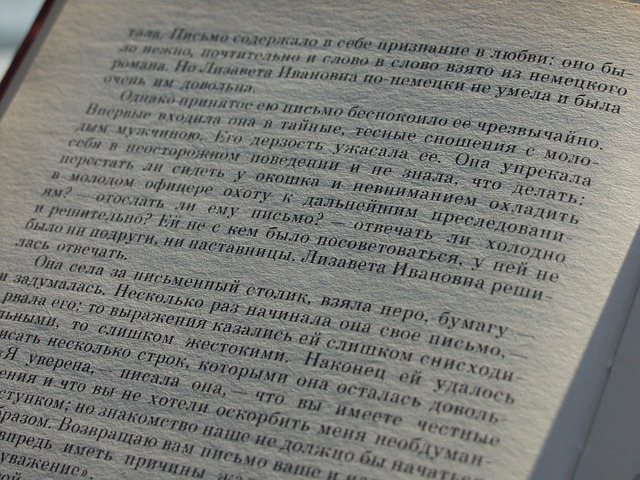
How to Structure the TOK
If you’re new to TOK, don’t worry! These tips will help you write this knowledge-based essay .
When you’re showing your understanding of the topic in your essay, make sure that you’re covering all of the important aspects that you’re being tested on.
That is to say, you need to:
- Show your ability to identify relevant resources.
- Make sound arguments.
- Understand the topic in-depth.
- Use creative connections in your thinking and structure to link the topics.
- Show your critical thinking skills through your ability to analyze claims.
Steps to Writing the TOK Essay
1. analyze the prescribed title.
The first step is to fully understand the theory of knowledge questions being asked.
The topic will include terms that will guide you in comparing and contrasting accordingly.
2. Choose the title
Choose a title that allows you to explore your interests.
It is also important to ensure that there is enough information to work with for to unpack the topic in the essay.
3. Study the brief
There are four criteria that the IB uses to score the TOK essay. Have a look at the grading criteria to familiarise yourself with what is expected of you.
4. Begin researching
Since the TOK is reflective, you need to unpack the topic thoughtfully before writing it.
Begin by brainstorming ideas and researching the topic.
5. Create the outline of the essay
Once you have the information and are ready to write, you can outline the essay.
The structure normally consists of at least five sections and a limit of around 1200 – 1600 words in total.
6. Write the body of the essay
Once you have outlined the structure, write the essay. Be sure to compare the topics and demonstrate your research.
You’ll need to explain each argument and counter argument in full to show you’ve unpacked the topic sufficiently.
Tackle each argument in its own paragraph and be sure to link them as you make your case.
Be sure to use words that show you’re comparing and contrasting topics, like “where as,” and “compared to.”
7. Write the conclusion of the essay
The conclusion is another critical part of your TOK essay. This is what brings closure to the topic.
It should leave the reader feeling that you’ve covered the topic comprehensively.
The conclusion needs to wrap up the topic and reiterate your stance.
The conclusion should not include any new information. It should instead be a strong and convincing finale.
It will also need to tie in with the introduction, which we’ll discuss next.
8. Writing the introduction
The introduction is an important part of the essay.
This should explain what the paper is about in a way that captures the reader’s interest.
It should include a brief explanation of the essay and importantly, the reason that this essay is of value to the topic.
It is often best to write the introduction last as you’ll be more familiar and comfortable with the topic.
9. Cite your sources
It is essential that you reference your sources throughout the essay and include a reference list at the end.
10. Proofread the essay
Ensure you leave enough time to edit the essay with fresh eyes and proofread it once more before submitting it.

Writing your Research Papers at Lanterna
The TOK paper is an exciting challenge for students. By exploring topics in depth, they can showcase their ability to unpack a topic and master the life skill of critical thinking.
With the right steps and sufficient preparation, you’ll be able to ace your essay with Lanterna.
If you need more help or guidance with TOK , reach out to your instructor or connect with a tutor from Lanterna .
Share article links
Related Articles

- IB Theory of Knowledge
- Most Popular
How to Ace your TOK Presentation
But first, what is the TOK presentation and what does it actually involve? The presentation is one of two compulsory TOK assignments. The TOK presentation is meant to test your understanding of TOK concepts in relation to a real-life situation. The real-life scenario can be based on a situation in your local community or an issue […]

The TOK Exhibition
If you’ve been in an IB school for awhile, you probably remember hearing older students talking about their Theory of Knowledge presentations. You may have even watched some of them. These presentations formed the ‘internal assessment’ section of TOK, with the TOK essay as the ‘external assessment’. The IBO recently changed the structure of the […]

- Study Skills
Better IB Essays: The Importance of Solid Argumentation
When you hear the word “argument”, you might tend to think of an aggressive shouting match, just to get your point across to somebody – the Latin root of the word actually translates as “to enlighten, make bright”. Argumentation, therefore, is much more than merely getting your point across. And, it’s central to writing all […]
Example essays
As part of theory of knowledge (TOK), each student chooses one essay title from six issued by International Baccalaureate®(IB).
The titles change in each examination session.
Upcoming and past questions include:
- “To what extent are areas of knowledge shaped by their past? Consider with reference to two areas of knowledge.”
- “'There is no reason why we cannot link facts and theories across disciplines and create a common groundwork of explanation.' To what extent do you agree with this statement?”
- “There is no such thing as a neutral question. Evaluate this statement with reference to two areas of knowledge.”
- “'The task of history is the discovering of the constant and universal principles of human nature.' To what extent are history and one other area of knowledge successful in this task?”
Further guidance on the TOK essay and exhibition can be found in the IB’s Programme Resource Centre (PRC) .
Materials in the PRC are only available to existing IB World Schools. These materials are free.
There are a number of resources on TOK in the IB Store , which are available to everyone.
Find out how to become an IB World School .

We use cookies on this site. By continuing to use this website, you consent to our use of these cookies. Read more about cookies

TOK Essay Assessment Criteria
TOK and TOK Essay a Definitive Guide Series: Part 4
TOK and TOK Essay: a Definitive Guide Series Part 4
Welcome to our Theory of Knowledge (TOK) and TOK Essay a Definitive Guide Series! In this series of articles, you will learn everything there is to know about the IB TOK course, TOK exhibition, and writing a compelling TOK essay. So let’s get started!
In order to excel in writing a successful TOK (Theory of Knowledge) essay one needs a clear understanding of the assessment criteria. In this article, we will explore the key aspects that examiners consider when evaluating TOK essays. Understanding these criteria will enable you to write a well-structured and insightful essay that demonstrates your critical thinking skills. So, let’s delve into the TOK essay assessment criteria and learn how to succeed in this task.
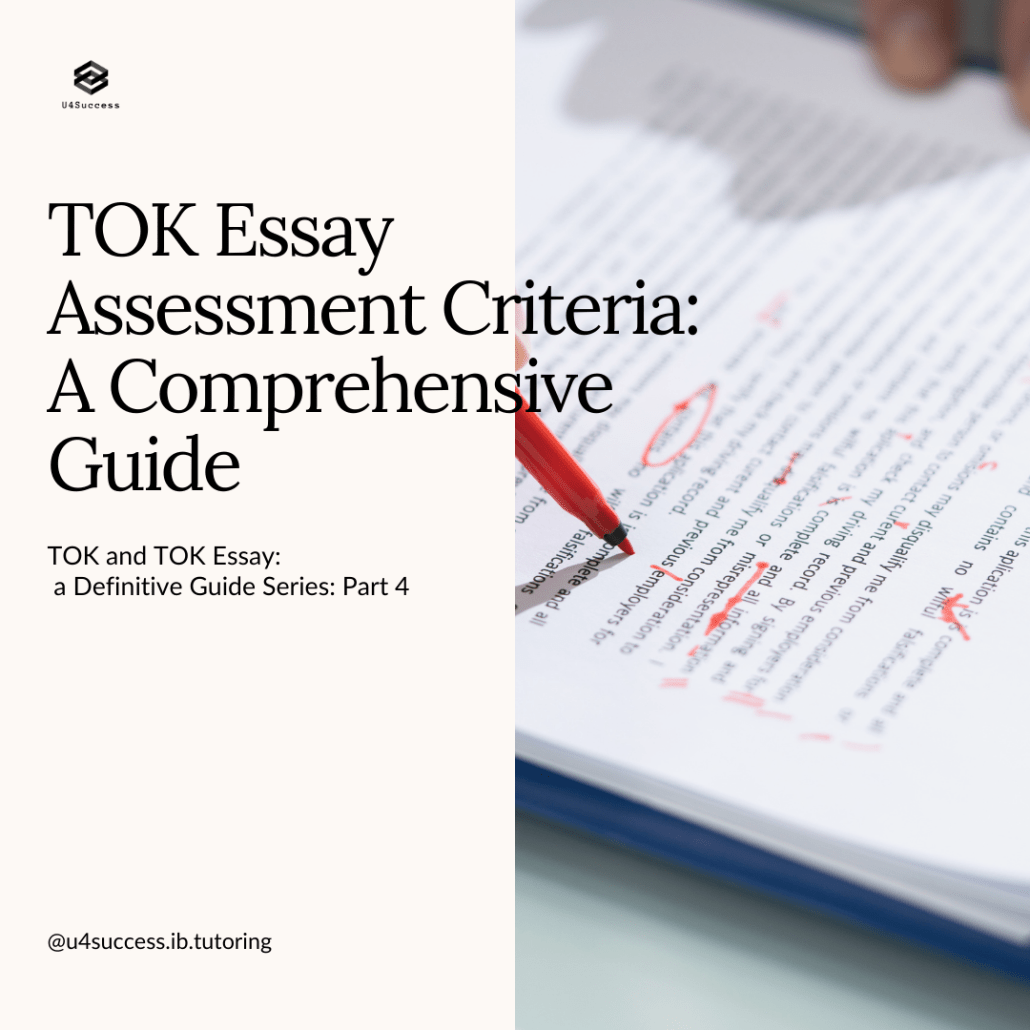
Clear, Coherent, and Critical Exploration
The primary criterion for a TOK essay is whether the student provides a clear, coherent, and critical exploration of the essay title. It is essential to maintain focus on the central question throughout your essay. By continuously relating your arguments and analysis to the essay title, you demonstrate your ability to stay on topic and present a well-developed response.
Emphasize How We Know, Not What We Know
A crucial aspect of the TOK essay is to focus on the process of knowledge acquisition rather than merely presenting factual information. Instead of providing lengthy descriptions of knowledge, your essay should explore how we acquire, produce, and pass on knowledge within the areas of knowledge. It is crucial to reflect on the methods, biases, limitations, and implications of knowledge within these areas.
Effective Use of Examples
While discussing the process of knowledge acquisition, it is essential to support your arguments with relevant examples. These examples can be drawn from subject lessons or real-life situations. By using examples, you can illustrate your points effectively and provide concrete evidence to support your claims. However, be cautious not to make your essay overly descriptive; instead, maintain a focus on critical analysis.
Coherence and Flow
A well-structured essay is coherent and allows the examiner to follow your line of reasoning. Introduce your ideas clearly and use appropriate connectives and paragraphs to enhance the flow of your writing. Ensure that your arguments are logically connected, allowing the examiner to understand the progression of your thoughts. This coherence and flow contribute to the overall quality of your essay.
Consider Multiple Perspectives
An excellent TOK essay incorporates and analyzes several perspectives on the given topic. It is vital to explore different angles and present a balanced view. Your essay should not offer a one-sided answer but should rather showcase your ability to consider multiple viewpoints. By engaging with various perspectives, you demonstrate your critical thinking skills and make your essay more compelling.
Implications and Significance
Consideration of the implications and significance of your claims is a crucial element of a strong TOK essay. When presenting your arguments or conclusions, analyze the broader implications they have for the quality, reliability, or nature of knowledge within the specific area of knowledge. Reflect on how your ideas connect to knowledge as a whole, exploring the larger implications of your claims.
Answer the Essay Prompt
Addressing the essay prompt directly is of utmost importance. Even if you manage to cover all the necessary elements required for an excellent essay, failure to answer the prompt itself can significantly impact your score. Ensure that you understand the essay question and frame your arguments accordingly. This clarity of purpose will enhance the coherence and relevance of your essay.
Concluding Remarks
Crafting a successful TOK essay requires adherence to the assessment criteria outlined by examiners. By providing a clear, coherent, and critical exploration of the essay title, emphasizing the process of knowledge acquisition, utilizing relevant examples, ensuring coherence and flow, considering multiple perspectives, and reflecting on implications, you can create a compelling essay that showcases your intellectual abilities.
Official Assessment Criteria
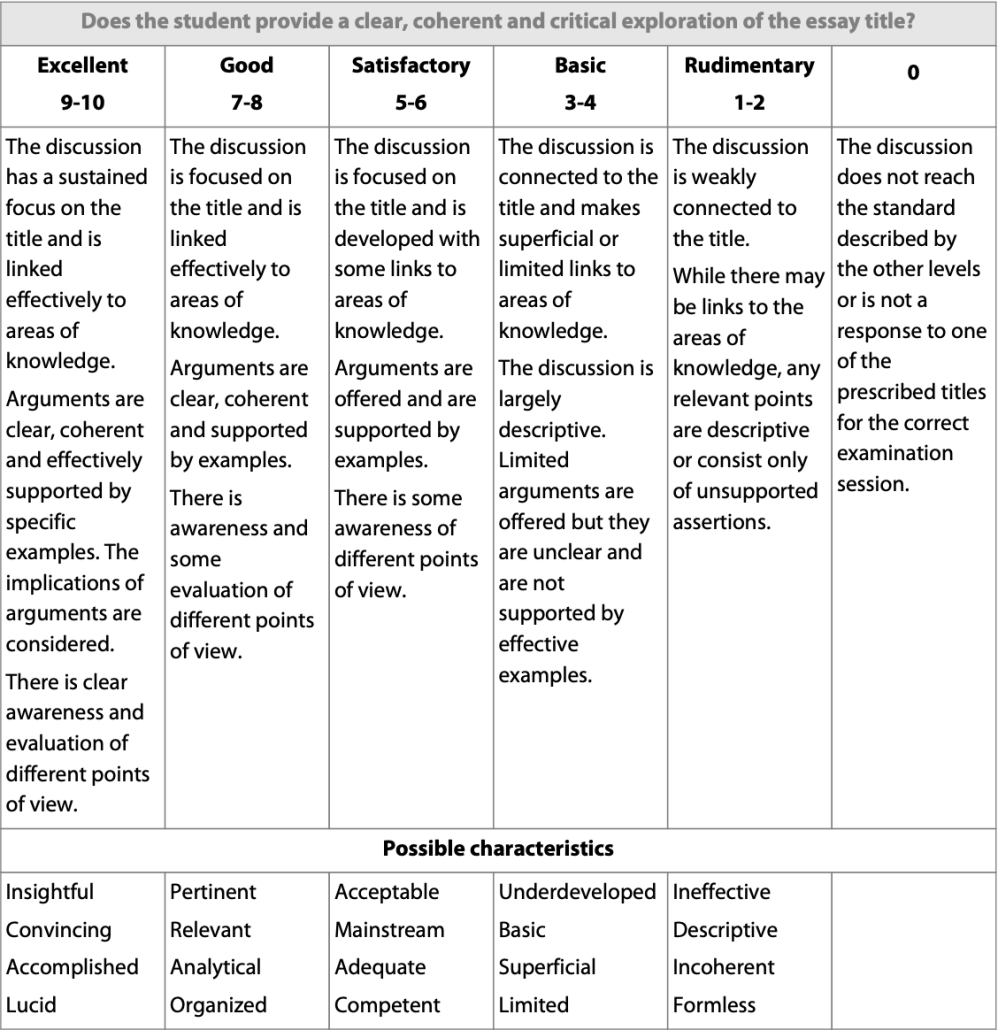
Frequently asked questions (FAQs)
Can I use personal experiences as examples in my TOK essay?
Yes, personal experiences can be used as examples in your TOK essay, as long as they are relevant and contribute to the critical exploration of the essay topic.
How many perspectives should I include in my TOK essay?
There is no fixed number of perspectives you should include. The key is to present multiple viewpoints that offer a well-rounded analysis of the topic, ensuring that your essay remains focused and coherent.
Should I include a conclusion in my TOK essay?
Yes, a conclusion is essential to summarize your main points and provide a final reflection on the essay topic. It helps bring your essay to a logical close and reinforces the overall argument.
Can I use rhetorical questions in my TOK essay?
Yes, rhetorical questions can be effective in engaging the reader and encouraging critical thinking. However, use them sparingly and ensure they contribute to the coherence and flow of your essay.
How can I ensure my TOK essay is unique and avoids plagiarism?
To maintain uniqueness and avoid plagiarism, ensure that you express ideas in your own words and properly cite any sources you reference. Take care to provide proper attribution for any quotes, examples, or evidence used in your essay.

About the Author
Anzhelika is a PhD candidate in Genetics and a marketing consultant at U4Success from Vienna, Austria. She leads our website and social media content strategy.
Share this:
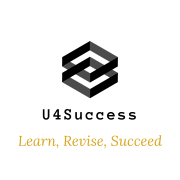
Our Policies
- Terms of Service
- Terms and Conditions
- Cookie Policy (EU)
- Privacy Policy

Discover more from U4Success | IB tutoring
Subscribe now to keep reading and get access to the full archive.
Type your email…
Continue reading

IB TOK Essay examples
Type a search phrase to find the most relevant TOK Essay examples for you
Not sure what to search for? You can always look through our example Internal Assessments below for inspiration.

All TOK Essay Examples
Filter exemplars, for artists and natural scientists, which is more important: what can be explained or what cannot be explained discuss with reference to the arts and the natural sciences., does it matter if our acquisition of knowledge happens in "bubbles" where some information and voices are excluded discuss with reference to two areas of knowledge., want to get full marks for your tok essay allow us to review it for you 🎯, is replicability necessary in the production of knowledge discuss with reference to two areas of knowledge., are visual representations always helpful in the communication of knowledge discuss with reference to the human sciences and mathematics., fast track your coursework with mark schemes moderated by ib examiners. upgrade now 🚀, to what extent is the knowledge we produce determined by the methodologies we use discuss with reference to history and one area of knowledge., tok essay: 5. “how can we distinguish between good and bad interpretations discuss with reference to the arts and one other area of knowledge”, 如果我们是在排除某些信息和声音的“信息同温层”里获取知识,这有关系吗请参考两个知识领域展开你的应答。, does it matter if our knowledge acquisition happens in "bubbles" where some information and voices are excluded discuss with reference to two areas of knowledge., is replicability necessary in the production of knowledge discuss with reference to two areas of knowledge, do you agree that it is “astonishing that so little knowledge can give us so much power” (bertrand russell) discuss with reference to the natural sciences and one other area of knowledge., does it matter if our acquisition of knowledge happens in “bubbles” where some information and voices are excluded discuss with reference to two areas of knowledge., to what extent is the knowledge weproduce determined by the methodologieswe use, for artists and natural scientists, which is more important: what can be explained or what cannot be explained discuss with reference to the arts and natural science., êtes-vous d'accord qu'il est "étonnant que si peu de connaissance puissent nous donner autant de pouvoir" (bertrand russell) - discutez cette question en faisant référence aux sciences naturelles et à un autre domaine de la connaissance, est-il important que notre acquisition des connaissances se fasse dans des « bulles » où certaines informations et certaines voix sont exclues discutez cette question en faisant référence à deux domaines de la connaissance., to what extent is the knowledge we produce determined by the methodologies we use discuss with reference to history and one other area of knowledge., is replicability necessary in the production of knowledge discuss with reference to two area of knowledge, are visual representations always helpful in communicating knowledge discuss with reference to the human sciences and mathematics., are visual representations always useful in communication of knowledge discuss with reference to the human sciences and mathematics., for artists and natural scientists which is more important: what can be explained or what cannot be explained, is replication necessary in the production of knowledge discuss with reference to two aoks., do you agree that it is "astonishing that so little knowledge can give us so much power" (bertrand russell) discuss with reference to the natural sciences and one other area of knowledge., is replicability necessary in the production of knowledge.

Choose Your Test
Sat / act prep online guides and tips, the complete ib extended essay guide: examples, topics, and ideas.
International Baccalaureate (IB)

IB students around the globe fear writing the Extended Essay, but it doesn't have to be a source of stress! In this article, I'll get you excited about writing your Extended Essay and provide you with the resources you need to get an A on it.
If you're reading this article, I'm going to assume you're an IB student getting ready to write your Extended Essay. If you're looking at this as a potential future IB student, I recommend reading our introductory IB articles first, including our guide to what the IB program is and our full coverage of the IB curriculum .
IB Extended Essay: Why Should You Trust My Advice?
I myself am a recipient of an IB Diploma, and I happened to receive an A on my IB Extended Essay. Don't believe me? The proof is in the IBO pudding:

If you're confused by what this report means, EE is short for Extended Essay , and English A1 is the subject that my Extended Essay topic coordinated with. In layman's terms, my IB Diploma was graded in May 2010, I wrote my Extended Essay in the English A1 category, and I received an A grade on it.
What Is the Extended Essay in the IB Diploma Programme?
The IB Extended Essay, or EE , is a mini-thesis you write under the supervision of an IB advisor (an IB teacher at your school), which counts toward your IB Diploma (learn more about the major IB Diploma requirements in our guide) . I will explain exactly how the EE affects your Diploma later in this article.
For the Extended Essay, you will choose a research question as a topic, conduct the research independently, then write an essay on your findings . The essay itself is a long one—although there's a cap of 4,000 words, most successful essays get very close to this limit.
Keep in mind that the IB requires this essay to be a "formal piece of academic writing," meaning you'll have to do outside research and cite additional sources.
The IB Extended Essay must include the following:
- A title page
- Contents page
- Introduction
- Body of the essay
- References and bibliography
Additionally, your research topic must fall into one of the six approved DP categories , or IB subject groups, which are as follows:
- Group 1: Studies in Language and Literature
- Group 2: Language Acquisition
- Group 3: Individuals and Societies
- Group 4: Sciences
- Group 5: Mathematics
- Group 6: The Arts
Once you figure out your category and have identified a potential research topic, it's time to pick your advisor, who is normally an IB teacher at your school (though you can also find one online ). This person will help direct your research, and they'll conduct the reflection sessions you'll have to do as part of your Extended Essay.
As of 2018, the IB requires a "reflection process" as part of your EE supervision process. To fulfill this requirement, you have to meet at least three times with your supervisor in what the IB calls "reflection sessions." These meetings are not only mandatory but are also part of the formal assessment of the EE and your research methods.
According to the IB, the purpose of these meetings is to "provide an opportunity for students to reflect on their engagement with the research process." Basically, these meetings give your supervisor the opportunity to offer feedback, push you to think differently, and encourage you to evaluate your research process.
The final reflection session is called the viva voce, and it's a short 10- to 15-minute interview between you and your advisor. This happens at the very end of the EE process, and it's designed to help your advisor write their report, which factors into your EE grade.
Here are the topics covered in your viva voce :
- A check on plagiarism and malpractice
- Your reflection on your project's successes and difficulties
- Your reflection on what you've learned during the EE process
Your completed Extended Essay, along with your supervisor's report, will then be sent to the IB to be graded. We'll cover the assessment criteria in just a moment.

We'll help you learn how to have those "lightbulb" moments...even on test day!
What Should You Write About in Your IB Extended Essay?
You can technically write about anything, so long as it falls within one of the approved categories listed above.
It's best to choose a topic that matches one of the IB courses , (such as Theatre, Film, Spanish, French, Math, Biology, etc.), which shouldn't be difficult because there are so many class subjects.
Here is a range of sample topics with the attached extended essay:
- Biology: The Effect of Age and Gender on the Photoreceptor Cells in the Human Retina
- Chemistry: How Does Reflux Time Affect the Yield and Purity of Ethyl Aminobenzoate (Benzocaine), and How Effective is Recrystallisation as a Purification Technique for This Compound?
- English: An Exploration of Jane Austen's Use of the Outdoors in Emma
- Geography: The Effect of Location on the Educational Attainment of Indigenous Secondary Students in Queensland, Australia
- Math: Alhazen's Billiard Problem
- Visual Arts: Can Luc Tuymans Be Classified as a Political Painter?
You can see from how varied the topics are that you have a lot of freedom when it comes to picking a topic . So how do you pick when the options are limitless?

How to Write a Stellar IB Extended Essay: 6 Essential Tips
Below are six key tips to keep in mind as you work on your Extended Essay for the IB DP. Follow these and you're sure to get an A!
#1: Write About Something You Enjoy
You can't expect to write a compelling essay if you're not a fan of the topic on which you're writing. For example, I just love British theatre and ended up writing my Extended Essay on a revolution in post-WWII British theatre. (Yes, I'm definitely a #TheatreNerd.)
I really encourage anyone who pursues an IB Diploma to take the Extended Essay seriously. I was fortunate enough to receive a full-tuition merit scholarship to USC's School of Dramatic Arts program. In my interview for the scholarship, I spoke passionately about my Extended Essay; thus, I genuinely think my Extended Essay helped me get my scholarship.
But how do you find a topic you're passionate about? Start by thinking about which classes you enjoy the most and why . Do you like math classes because you like to solve problems? Or do you enjoy English because you like to analyze literary texts?
Keep in mind that there's no right or wrong answer when it comes to choosing your Extended Essay topic. You're not more likely to get high marks because you're writing about science, just like you're not doomed to failure because you've chosen to tackle the social sciences. The quality of what you produce—not the field you choose to research within—will determine your grade.
Once you've figured out your category, you should brainstorm more specific topics by putting pen to paper . What was your favorite chapter you learned in that class? Was it astrophysics or mechanics? What did you like about that specific chapter? Is there something you want to learn more about? I recommend spending a few hours on this type of brainstorming.
One last note: if you're truly stumped on what to research, pick a topic that will help you in your future major or career . That way you can use your Extended Essay as a talking point in your college essays (and it will prepare you for your studies to come too!).
#2: Select a Topic That Is Neither Too Broad nor Too Narrow
There's a fine line between broad and narrow. You need to write about something specific, but not so specific that you can't write 4,000 words on it.
You can't write about WWII because that would be a book's worth of material. You also don't want to write about what type of soup prisoners of war received behind enemy lines, because you probably won’t be able to come up with 4,000 words of material about it. However, you could possibly write about how the conditions in German POW camps—and the rations provided—were directly affected by the Nazis' successes and failures on the front, including the use of captured factories and prison labor in Eastern Europe to increase production. WWII military history might be a little overdone, but you get my point.
If you're really stuck trying to pinpoint a not-too-broad-or-too-narrow topic, I suggest trying to brainstorm a topic that uses a comparison. Once you begin looking through the list of sample essays below, you'll notice that many use comparisons to formulate their main arguments.
I also used a comparison in my EE, contrasting Harold Pinter's Party Time with John Osborne's Look Back in Anger in order to show a transition in British theatre. Topics with comparisons of two to three plays, books, and so on tend to be the sweet spot. You can analyze each item and then compare them with one another after doing some in-depth analysis of each individually. The ways these items compare and contrast will end up forming the thesis of your essay!
When choosing a comparative topic, the key is that the comparison should be significant. I compared two plays to illustrate the transition in British theatre, but you could compare the ways different regional dialects affect people's job prospects or how different temperatures may or may not affect the mating patterns of lightning bugs. The point here is that comparisons not only help you limit your topic, but they also help you build your argument.
Comparisons are not the only way to get a grade-A EE, though. If after brainstorming, you pick a non-comparison-based topic and are still unsure whether your topic is too broad or narrow, spend about 30 minutes doing some basic research and see how much material is out there.
If there are more than 1,000 books, articles, or documentaries out there on that exact topic, it may be too broad. But if there are only two books that have any connection to your topic, it may be too narrow. If you're still unsure, ask your advisor—it's what they're there for! Speaking of advisors...

Don't get stuck with a narrow topic!
#3: Choose an Advisor Who Is Familiar With Your Topic
If you're not certain of who you would like to be your advisor, create a list of your top three choices. Next, write down the pros and cons of each possibility (I know this sounds tedious, but it really helps!).
For example, Mr. Green is my favorite teacher and we get along really well, but he teaches English. For my EE, I want to conduct an experiment that compares the efficiency of American electric cars with foreign electric cars.
I had Ms. White a year ago. She teaches physics and enjoyed having me in her class. Unlike Mr. Green, Ms. White could help me design my experiment.
Based on my topic and what I need from my advisor, Ms. White would be a better fit for me than would Mr. Green (even though I like him a lot).
The moral of my story is this: do not just ask your favorite teacher to be your advisor . They might be a hindrance to you if they teach another subject. For example, I would not recommend asking your biology teacher to guide you in writing an English literature-based EE.
There can, of course, be exceptions to this rule. If you have a teacher who's passionate and knowledgeable about your topic (as my English teacher was about my theatre topic), you could ask that instructor. Consider all your options before you do this. There was no theatre teacher at my high school, so I couldn't find a theatre-specific advisor, but I chose the next best thing.
Before you approach a teacher to serve as your advisor, check with your high school to see what requirements they have for this process. Some IB high schools require your IB Extended Essay advisor to sign an Agreement Form , for instance.
Make sure that you ask your IB coordinator whether there is any required paperwork to fill out. If your school needs a specific form signed, bring it with you when you ask your teacher to be your EE advisor.
#4: Pick an Advisor Who Will Push You to Be Your Best
Some teachers might just take on students because they have to and aren't very passionate about reading drafts, only giving you minimal feedback. Choose a teacher who will take the time to read several drafts of your essay and give you extensive notes. I would not have gotten my A without being pushed to make my Extended Essay draft better.
Ask a teacher that you have experience with through class or an extracurricular activity. Do not ask a teacher that you have absolutely no connection to. If a teacher already knows you, that means they already know your strengths and weaknesses, so they know what to look for, where you need to improve, and how to encourage your best work.
Also, don't forget that your supervisor's assessment is part of your overall EE score . If you're meeting with someone who pushes you to do better—and you actually take their advice—they'll have more impressive things to say about you than a supervisor who doesn't know you well and isn't heavily involved in your research process.
Be aware that the IB only allows advisors to make suggestions and give constructive criticism. Your teacher cannot actually help you write your EE. The IB recommends that the supervisor spends approximately two to three hours in total with the candidate discussing the EE.
#5: Make Sure Your Essay Has a Clear Structure and Flow
The IB likes structure. Your EE needs a clear introduction (which should be one to two double-spaced pages), research question/focus (i.e., what you're investigating), a body, and a conclusion (about one double-spaced page). An essay with unclear organization will be graded poorly.
The body of your EE should make up the bulk of the essay. It should be about eight to 18 pages long (again, depending on your topic). Your body can be split into multiple parts. For example, if you were doing a comparison, you might have one third of your body as Novel A Analysis, another third as Novel B Analysis, and the final third as your comparison of Novels A and B.
If you're conducting an experiment or analyzing data, such as in this EE , your EE body should have a clear structure that aligns with the scientific method ; you should state the research question, discuss your method, present the data, analyze the data, explain any uncertainties, and draw a conclusion and/or evaluate the success of the experiment.
#6: Start Writing Sooner Rather Than Later!
You will not be able to crank out a 4,000-word essay in just a week and get an A on it. You'll be reading many, many articles (and, depending on your topic, possibly books and plays as well!). As such, it's imperative that you start your research as soon as possible.
Each school has a slightly different deadline for the Extended Essay. Some schools want them as soon as November of your senior year; others will take them as late as February. Your school will tell you what your deadline is. If they haven't mentioned it by February of your junior year, ask your IB coordinator about it.
Some high schools will provide you with a timeline of when you need to come up with a topic, when you need to meet with your advisor, and when certain drafts are due. Not all schools do this. Ask your IB coordinator if you are unsure whether you are on a specific timeline.
Below is my recommended EE timeline. While it's earlier than most schools, it'll save you a ton of heartache (trust me, I remember how hard this process was!):
- January/February of Junior Year: Come up with your final research topic (or at least your top three options).
- February of Junior Year: Approach a teacher about being your EE advisor. If they decline, keep asking others until you find one. See my notes above on how to pick an EE advisor.
- April/May of Junior Year: Submit an outline of your EE and a bibliography of potential research sources (I recommend at least seven to 10) to your EE advisor. Meet with your EE advisor to discuss your outline.
- Summer Between Junior and Senior Year: Complete your first full draft over the summer between your junior and senior year. I know, I know—no one wants to work during the summer, but trust me—this will save you so much stress come fall when you are busy with college applications and other internal assessments for your IB classes. You will want to have this first full draft done because you will want to complete a couple of draft cycles as you likely won't be able to get everything you want to say into 4,000 articulate words on the first attempt. Try to get this first draft into the best possible shape so you don't have to work on too many revisions during the school year on top of your homework, college applications, and extracurriculars.
- August/September of Senior Year: Turn in your first draft of your EE to your advisor and receive feedback. Work on incorporating their feedback into your essay. If they have a lot of suggestions for improvement, ask if they will read one more draft before the final draft.
- September/October of Senior Year: Submit the second draft of your EE to your advisor (if necessary) and look at their feedback. Work on creating the best possible final draft.
- November-February of Senior Year: Schedule your viva voce. Submit two copies of your final draft to your school to be sent off to the IB. You likely will not get your grade until after you graduate.
Remember that in the middle of these milestones, you'll need to schedule two other reflection sessions with your advisor . (Your teachers will actually take notes on these sessions on a form like this one , which then gets submitted to the IB.)
I recommend doing them when you get feedback on your drafts, but these meetings will ultimately be up to your supervisor. Just don't forget to do them!

The early bird DOES get the worm!
How Is the IB Extended Essay Graded?
Extended Essays are graded by examiners appointed by the IB on a scale of 0 to 34 . You'll be graded on five criteria, each with its own set of points. You can learn more about how EE scoring works by reading the IB guide to extended essays .
- Criterion A: Focus and Method (6 points maximum)
- Criterion B: Knowledge and Understanding (6 points maximum)
- Criterion C: Critical Thinking (12 points maximum)
- Criterion D: Presentation (4 points maximum)
- Criterion E: Engagement (6 points maximum)
How well you do on each of these criteria will determine the final letter grade you get for your EE. You must earn at least a D to be eligible to receive your IB Diploma.
Although each criterion has a point value, the IB explicitly states that graders are not converting point totals into grades; instead, they're using qualitative grade descriptors to determine the final grade of your Extended Essay . Grade descriptors are on pages 102-103 of this document .
Here's a rough estimate of how these different point values translate to letter grades based on previous scoring methods for the EE. This is just an estimate —you should read and understand the grade descriptors so you know exactly what the scorers are looking for.
Here is the breakdown of EE scores (from the May 2021 bulletin):
How Does the Extended Essay Grade Affect Your IB Diploma?
The Extended Essay grade is combined with your TOK (Theory of Knowledge) grade to determine how many points you get toward your IB Diploma.
To learn about Theory of Knowledge or how many points you need to receive an IB Diploma, read our complete guide to the IB program and our guide to the IB Diploma requirements .
This diagram shows how the two scores are combined to determine how many points you receive for your IB diploma (3 being the most, 0 being the least). In order to get your IB Diploma, you have to earn 24 points across both categories (the TOK and EE). The highest score anyone can earn is 45 points.

Let's say you get an A on your EE and a B on TOK. You will get 3 points toward your Diploma. As of 2014, a student who scores an E on either the extended essay or TOK essay will not be eligible to receive an IB Diploma .
Prior to the class of 2010, a Diploma candidate could receive a failing grade in either the Extended Essay or Theory of Knowledge and still be awarded a Diploma, but this is no longer true.
Figuring out how you're assessed can be a little tricky. Luckily, the IB breaks everything down here in this document . (The assessment information begins on page 219.)

40+ Sample Extended Essays for the IB Diploma Programme
In case you want a little more guidance on how to get an A on your EE, here are over 40 excellent (grade A) sample extended essays for your reading pleasure. Essays are grouped by IB subject.
- Business Management 1
- Chemistry 1
- Chemistry 2
- Chemistry 3
- Chemistry 4
- Chemistry 5
- Chemistry 6
- Chemistry 7
- Computer Science 1
- Economics 1
- Design Technology 1
- Design Technology 2
- Environmental Systems and Societies 1
- Geography 1
- Geography 2
- Geography 3
- Geography 4
- Geography 5
- Geography 6
- Literature and Performance 1
- Mathematics 1
- Mathematics 2
- Mathematics 3
- Mathematics 4
- Mathematics 5
- Philosophy 1
- Philosophy 2
- Philosophy 3
- Philosophy 4
- Philosophy 5
- Psychology 1
- Psychology 2
- Psychology 3
- Psychology 4
- Psychology 5
- Social and Cultural Anthropology 1
- Social and Cultural Anthropology 2
- Social and Cultural Anthropology 3
- Sports, Exercise and Health Science 1
- Sports, Exercise and Health Science 2
- Visual Arts 1
- Visual Arts 2
- Visual Arts 3
- Visual Arts 4
- Visual Arts 5
- World Religion 1
- World Religion 2
- World Religion 3

What's Next?
Trying to figure out what extracurriculars you should do? Learn more about participating in the Science Olympiad , starting a club , doing volunteer work , and joining Student Government .
Studying for the SAT? Check out our expert study guide to the SAT . Taking the SAT in a month or so? Learn how to cram effectively for this important test .
Not sure where you want to go to college? Read our guide to finding your target school . Also, determine your target SAT score or target ACT score .
Want to improve your SAT score by 160 points or your ACT score by 4 points? We've written a guide for each test about the top 5 strategies you must be using to have a shot at improving your score. Download it for free now:

As an SAT/ACT tutor, Dora has guided many students to test prep success. She loves watching students succeed and is committed to helping you get there. Dora received a full-tuition merit based scholarship to University of Southern California. She graduated magna cum laude and scored in the 99th percentile on the ACT. She is also passionate about acting, writing, and photography.
Student and Parent Forum
Our new student and parent forum, at ExpertHub.PrepScholar.com , allow you to interact with your peers and the PrepScholar staff. See how other students and parents are navigating high school, college, and the college admissions process. Ask questions; get answers.

Ask a Question Below
Have any questions about this article or other topics? Ask below and we'll reply!
Improve With Our Famous Guides
- For All Students
The 5 Strategies You Must Be Using to Improve 160+ SAT Points
How to Get a Perfect 1600, by a Perfect Scorer
Series: How to Get 800 on Each SAT Section:
Score 800 on SAT Math
Score 800 on SAT Reading
Score 800 on SAT Writing
Series: How to Get to 600 on Each SAT Section:
Score 600 on SAT Math
Score 600 on SAT Reading
Score 600 on SAT Writing
Free Complete Official SAT Practice Tests
What SAT Target Score Should You Be Aiming For?
15 Strategies to Improve Your SAT Essay
The 5 Strategies You Must Be Using to Improve 4+ ACT Points
How to Get a Perfect 36 ACT, by a Perfect Scorer
Series: How to Get 36 on Each ACT Section:
36 on ACT English
36 on ACT Math
36 on ACT Reading
36 on ACT Science
Series: How to Get to 24 on Each ACT Section:
24 on ACT English
24 on ACT Math
24 on ACT Reading
24 on ACT Science
What ACT target score should you be aiming for?
ACT Vocabulary You Must Know
ACT Writing: 15 Tips to Raise Your Essay Score
How to Get Into Harvard and the Ivy League
How to Get a Perfect 4.0 GPA
How to Write an Amazing College Essay
What Exactly Are Colleges Looking For?
Is the ACT easier than the SAT? A Comprehensive Guide
Should you retake your SAT or ACT?
When should you take the SAT or ACT?
Stay Informed
Get the latest articles and test prep tips!
Looking for Graduate School Test Prep?
Check out our top-rated graduate blogs here:
GRE Online Prep Blog
GMAT Online Prep Blog
TOEFL Online Prep Blog
Holly R. "I am absolutely overjoyed and cannot thank you enough for helping me!”
- All Articles
- Essay/Pres Help
- For Teachers
Recent Posts
- Sense Perception: The McGurk Effect
- TOK prescribed titles May 2011
- Linking Arts, Math, Perception and Emotions
- Ethics Video on Utilitarianism and Categorical Imperative
- Excellent TOK Videos (German)
- Mathematics
- General TOK
- TOK Presentation
- Linking Questions
- Reflections
- Teaching Advice
- Emotion / Intuition
- Logics / Reason
- Sense Perception
TOK Essay Checklist
- Introduction: You must give it a clear introduction that allows the reader to understand in which direction the essay is going. The introduction must also contain your thesis statement (“knowledge issue”). What is the problem of knowledge? You must answer the essay title and not modify it. As there are several ways to answer the essay title, you must make it clear in the introduction which way you are going.
- Terms: You must define the terms of the essay question, but do not simply give dictionary definitions! How do you interpret these terms? If you do use dictionary definitions, then you must critically reflect on them to get points.
- Structure: The essay must be divided into separate paragraphs, each paragraph must relate to the point that you make. The paragraphs answer should directly answer your thesis and the title question.
- Paragraphs: Each paragraph must deal with one aspect. Every paragraph must include an introductory sentence a body and conclusion. There must be a proper transition between the paragraphs. Make sure that each paragraph clearly answers the prescribed title!
- Critical thinking: You must include counter arguments and demonstrate critical thinking.
- Generalizations: As a rule, don’t use generalizing words, such as “all”, “none”, “everyone”, “no one”, “since the beginning of humankind”, “it has always been known…”, “Everyone knows”….. Chances are good that your statement will not be correct.
- Stereotypes: Be careful that you do not use stereotypes when addressing cultural issues!
- Conclusion: The conclusion must not address new points. It should round off the essay. Do not squeeze new ideas into the conclusion that are best left for a separate paragraph.
- TOK Issues: You must include TOK theory, but you must also apply this theory to answer your title question. A summary of theory alone is not enough.
- Areas of Knowledge and the different Ways of Knowing: Did you include and compare them? Some prescribed titles have a strong focus on only one Area of Knowledge or Way of Knowing. In this case it is not necessary to force yourself to include other areas as well, but a short comparison, if relevant, can never hurt. In any case, the essay should reflect a broadness in ideas.
- Examples: Support your arguments with relevant examples. Do not include examples that are not explained. Include specific relevant examples from your personal life. Do not just summarize examples from your teacher.
- Word count: If you need to stretch your essay in order to meet the word count, then you have not spent enough time thinking about your topic. Sentences without content are irrelevant and a waste of time. You will not get points for them. Word count is 1200-1600 words. Do not exceed.
- The Assessment Criteria: Have you written the essay with the assessment criteria next to you? If not, then I do not understand why you chose to make the task of writing the essay more difficult than necessary. The criteria should help you.
Check List (based on the assessment criteria)
- Are the problems of knowledge recognized? Do you refer to the problems of knowledge throughout the essay?
- Does critical reflection take place (counter arguments, etc.), or are there sweeping generalizations?
- Are different Ways of Knowing and different Areas of Knowledge addressed? Are they properly linked?
- Is the essay properly structured into paragraphs? Does each paragraph answer the title question?
- Are relevant examples (from different sources) given and explained? Did you also include personal examples?
- Are the statements and claims factually correct? Sweeping generalizations are very risky. They show a lack of critical reflection and are factually often not correct as well.
1 Response to TOK Essay Checklist
This is great!! It is exactly what I need it !!!!!
Leave a Reply
Name (required)
Mail (will not be published) (required)

HS Theory of Knowledge: TOK Exhibition
- General Information
- TOK Exhibition
- ISZL Online Subscription Sources
- TOK Books in the Library
- Open Access Resources
- NoodleTools
- Citation Assistance
- Annotated Bibliography
- Academic Honesty
- Understanding Turnitin
- Understanding Source Types
- HS Library Homepage This link opens in a new window
Exhibition prompts
The IA prompts are a set of 35 high-level knowledge questions. Students must select one of the following IA prompts on which to base their exhibition, and all three objects must be linked to the same prompt. These IA prompts apply for all examination sessions for the life of this guide—they do not change from session to session. Students are required to create an exhibition of three objects that connect to one of the following IA prompts.
1. What counts as knowledge? 2. Are some types of knowledge more useful than others? 3. What features of knowledge have an impact on its reliability? 4. On what grounds might we doubt a claim? 5. What counts as good evidence for a claim? TOK assessment details 40 Theory of knowledge guide 6. How does the way that we organize or classify knowledge affect what we know? 7. What are the implications of having, or not having, knowledge? 8. To what extent is certainty attainable? 9. Are some types of knowledge less open to interpretation than others? 10. What challenges are raised by the dissemination and/or communication of knowledge? 11. Can new knowledge change established values or beliefs? 12. Is bias inevitable in the production of knowledge? 13. How can we know that current knowledge is an improvement upon past knowledge? 14. Does some knowledge belong only to particular communities of knowers? 15. What constraints are there on the pursuit of knowledge? 16. Should some knowledge not be sought on ethical grounds? 17. Why do we seek knowledge? 18. Are some things unknowable? 19. What counts as a good justification for a claim? 20. What is the relationship between personal experience and knowledge? 21. What is the relationship between knowledge and culture? 22. What role do experts play in influencing our consumption or acquisition of knowledge? 23. How important are material tools in the production or acquisition of knowledge? 24. How might the context in which knowledge is presented influence whether it is accepted or rejected? 25. How can we distinguish between knowledge, belief and opinion? 26. Does our knowledge depend on our interactions with other knowers? 27. Does all knowledge impose ethical obligations on those who know it? 28. To what extent is objectivity possible in the production or acquisition of knowledge? 29. Who owns knowledge? 30. What role does imagination play in producing knowledge about the world? 31. How can we judge when evidence is adequate? 32. What makes a good explanation? 33. How is current knowledge shaped by its historical development? 34. In what ways do our values affect our acquisition of knowledge? 35. In what ways do values affect the production of knowledge?
The chosen IA prompt must be used exactly as given; it must not be altered in any way.
- If the IA prompt has been modified but it is still clear which IA prompt the student is referring to, the TOK exhibition should be marked as using the original IA prompt. Any lack of relevance in the student’s response arising from this modification will be reflected in the score awarded.
- If it is clear that the TOK Exhibition is not based on one of the IA prompts listed, the TOK exhibition should be awarded a score of zero, in accordance with the TOK Exhibition assessment instrument.
- Exhibition Prompts Refer to the offical IB guide P. 40 for more information
An exhibition outline writing guide

Exhibition Guidelines - Word Count
The maximum overall word count for the TOK exhibition is 950 words .
This word count includes the written commentaries on each of the three objects. It does not include: • any text contained on/within the objects themselves • acknowledgments, references (whether given in footnotes, endnotes or in-text) or bibliography. If an exhibition exceeds the word limit, then examiners are instructed to stop reading after 950 words and to base their assessment on only the first 950 words. Extended footnotes or appendices are not appropriate to a TOK exhibition.
TOK Talk Podcast (Exhibition prompts)
Prompt 1: What counts of knowledge?
Prompt 2: Are some types of knowledge more useful than others?
Prompt 4: On What Grounds Might We Doubt A Claim?
Prompt 7: What are the implications of having or not having knowledge?
Prompt 9: Are some types of knowledge less open to interpretation than others?
Prompt 12: Is bias inevitable in the production of knowledge?
Prompt 14: Does Some Knowledge Belong to Communities Of Knowers?
Prompt 15: What constraints are there on the pursuit of knowledge?
What is the TOK exhibition?
Exhibition Rubric
Refer to the offical IB guide P. 46 for more information
- << Previous: TOK Essay
- Next: ISZL Online Subscription Sources >>
- Last Updated: Jan 15, 2024 2:55 PM
- URL: https://iszl.libguides.com/TOK
Writing & uploading the TOK essay
TOK Home > Free TOK notes > TOK essay guidance > Writing & uploading the TOK essay

After you have grasped the essay rubric , chosen your title , and have a clear plan and structure , you can start writing your TOK essay. You’ll be doing this alongside the three interactions, so keep these in mind as you proceed.
Read the points below to get some advice on how to write your essay, and avoid common mistakes made by students.
STEP 4: Write and upload your TOK essay
Get started.
The most important part of writing your essay is getting started. You can procrastinate for ages, thinking about whether you’ve chosen the right title, which areas of knowledge to explore the question in, key thinker and ides to draw on, and so on. Obviously you need to choose the right title, and have an effective plan, but this means nothing until you have put your thoughts down on paper. You will find that many of your uncertainties start to resolve themselves when you start writing.
The introduction is all important
Your introduction should begin with a ‘hook’ to engage the reader, offer your interpretation of the key words or ideas from the title (don’t just copy a definition out of a dictionary – give your take on what the title means), outline the scope of the essay. Get your introduction right, and you will have set up the foundations for a great essay. If you rush it, or not view it with the importance it really requires, you’ll struggle to develop clear ideas in the main body of the essay.
Follow a clear essay plan
By two, you should have formulated a clear essay plan. This means knowing which AOKs you are using as the context of the essay, the arguments and counterarguments you’ll be presenting, the real-life examples you’ll be drawing on to justify discussion points, how you’ll indicate the implications of your arguments, and the way in which you’ll challenge assumptions in the question. Agree with your teacher on this plan, and let them know if you are deviating significantly from it.
Justify each point you make
Each of the discussion points you make should be supported by a real-life example. These can come from your own experiences as a knower (inside, and outside of the school), or from events, issues, and topics you’ve read about or encountered from the news and other media sources.
Don’t jump straight into your examples
A common mistake made by students is to move straight onto real-life examples without offering a proper discussion about knowledge. Discuss your own take on the question, perhaps referring to a key thinker or theory, before relating this to a real-life situation.
Consider counterarguments
You need to offer a consideration of different points of view, and the way to do this is via counterarguments. For each of your claims or arguments, you should offer a counterclaim or counterargument, weighing up how the issue could be considered from another point of view. Make sure you evaluate these counterarguments, and don’t just mention them.
Find your own voice
Make sure that you offer your own opinions, give your own interpretation of the title, and offer your own experiences to support your arguments. This will demonstrate your skills as a critical thinker, and distinguish your essay from those that rely on generic and cliched discussions.
Make full use of the interactions
In order to develop your ideas, and ensure that you’re on the right track with your essay, make sure you make full use of the with your teacher. It’s during these one-to-one sessions that you can discuss your arguments, evaluate your examples, and consider which key thinkers and concepts work in your essay.
Don’t neglect the non-assessed elements
Make sure that you format your essay in the right way, offer a decent bibliography, hit the word limit (without going over it), and follow all the other protocols for submitting your TOK essay. This will present a great impression to examiners, and show that you are ready and willing to follow the IB requirements for the assessment task.
A four-step guide to the TOK essay
Click on the buttons below to take you to the four steps of creating a great TOK essay. Don’t forget that we have plenty of videos on this and other aspects of the course, and members of the site have access to a huge amount of other resources to help you master the course and assessment tasks.

Check out our three-minute explainer video on the TOK essay here . The video goes over the basics of the TOK essay, such as how it’s assessed, the word count and other practical details, terms such as ‘perspectives’ and ‘implications’, and the role of real-world examples in justifying claims and arguments.
You’ll find more videos on this and other aspects of TOK here , and you can dive into much more depth via our free and premium webinars, here .
Watch our essay & exhibition webinars
Click on the images below to access these premium webinars on how to create the essay and exhibition. Access more webinars here , and watch our videos on the assessment tasks on this page .

FAQs about the TOK essay
How do i choose my tok essay title.
You choose your essay from six prescribed essay titles, that are released at the beginning of your second DP year. We give a few tips on how to choose a PT that will work for you here . But briefly, choose one that links to your pre-existing knowledge, and that you find personally engaging.
What will I be writing about in my TOK essay?
You’ll be answering your prescribed title, within the context of two areas of knowledge, considering how different perspectives might affect our response to the question, and what the implications of your arguments are.
Can I use ChatGPT to write my essay?
You can use ChatGPT to help you gather materials for your essay, but you should definitely not be using it to write the essay. Be very careful with ChatGPT. It bases its answers on online material, and much of this is inaccurate or out-of-date. For example, depending on what you ask it, it may tell you that you have to explore multiple areas of knowledge (rather than the two stipulated by the titles), and that you have to identify a separate knowledge question to the title (which is absolutely not the case).
How much help should I expect from my teacher?
Your teacher should run through the PTs when they are first released, and then meet you for three interactions, during which you’ll discuss your progress. They are allowed to give you one set of written feedback. But you can consult them at other times with specific questions.
Do I need to use real-world examples in my TOK essay?
Yes, real-life examples help illustrate your points and make your arguments more tangible. They can be drawn from personal experiences, historical events, scientific discoveries, etc.
Should I include my personal opinion in the TOK essay?
While the TOK essay is not about your personal opinion per se, it’s important to reflect on your perspective and how it shapes the way you understand the title. However, you should avoid using the essay as a platform for rants or unsubstantiated claims.
Is it necessary to include counter-arguments in my TOK essay?
Yes, including counter-arguments shows a deeper understanding of the complexity of the topic and demonstrates your critical thinking skills. It also enables you to consider different perspectives, and evaluate the implications of arguments.
Should I include the 12 key concepts in my essay?
Yes, as much as you can, draw on the key concepts such as justification, evidence, perspective, bias, certainty, and objectivity within your arguments linking them to the title, and to the real-world examples you draw on.
How do I ensure that my TOK essay reflects my own original thinking, and avoids plagiarism?
Clearly attribute ideas and sources that are not your own, and strive to present original insights and interpretations supported by evidence and reasoning. See our point above on using ChatGPT – never view this as more than a tool to help you gather material for your essay, rather than a tool to write it for you.
What are some common pitfalls to avoid when writing a TOK essay?
Avoid oversimplifying complex issues, relying solely on personal opinion without justification, neglecting counter-arguments, veering off the question, and failing to include a consideration of different perspectives.
How long do I have to write my essay?
You’ll have 6 months from the time the prescribed titles are released, to the deadline date for uploading your essay to the IB. However, most schools will set their own deadline for completing the essay, so that everyone has plenty of time to complete your PPF, and upload it on time. Follow what your school tells you about this.
How important is the TOK essay PPF?
The PPF (‘Planning and Progress Form’) is the document that you fill in to outline your discussions during the three essay. Although this is not directly assessed, it is an important part of demonstrating that you have approached the TOK essay in an ethical way, which is now particularly important in the era of ChatGPT.
What are some effective strategies for revising and editing my TOK essay to improve clarity and coherence?
Take breaks between revisions, seek feedback from peers or teachers, and carefully proofread for grammar, punctuation, and coherence.
Should I include references or a bibliography in my TOK essay?
While not required, referencing sources appropriately adds credibility to your essay; use footnotes or endnotes for citations.

Subscribe to the free TOK newsletter!
Subscribe to our free newsletter, and collect fantastic examples that will help you to understand the key ideas of TOK, support your essay and exhibition discussions, and help you to become an authentic critical thinker .
You’ll encounter some of the most important thinkers from the past and the present, go beyond the headlines of contemporary events and issues around the globe, and see how TOK concepts manifest in the real-world. Subscribe HERE !
- International Baccalaureate
- Remember me Not recommended on shared computers
Forgot your password?
Or sign in with one of these services
Theory of Knowledge
Talk about Theory of Knowledge.
If you want help with prescribed TOK Essay titles, check this thread to see if your title has an existing thread first. Only when a thread does not already exist for your title can you start a new thread about TOK prescribed titles. Put the exam session and the title number in the thread title (e.g Nov09/May10 Title 5) Do not open start threads like this .
- Start new topic
2,043 topics in this forum
- Recently Updated
- Most Viewed
- Most Replies
TOK Essay - OFFICIAL Guide
- 124.7k views
Skip to the correct section by clicking the links below: 1. How to choose your essay topic: the things to keep in mind by Ishaan 2. Basic guide to writing the essay by Julie 3. 5 Things to do Before you Finish your TOK Essay

ToK Presentation OFFICIAL Guide 1 2
- 235.6k views
Skip to these useful links: 1. ToK Presentation Guide by Keel 2. How to pick your TOK presentation title by Sandwich 3. Past TOK Presentations - what people chose ToK Presentation Guide Knowledge Issues 'Knowledge issue' i.e. issues about knowledge. It would be appropriate here to consider what ToK is all about. Many naturally assume that anything philosophically based is ToK. Understandable, but wrong. ToK is based around three main questions: What is knowledge? How is knowledge acquired? How do we know what we know? In layman’s terms, a knowledge issue is a very general question which aims to explore the problems of kn…

- presentation

Introduction to TOK - Bits of TOK wisdom & advice 1 2
- 87.9k views
Skip to useful links: Video Summary of TOK (workshop) To every confused soul out there who is yet to start their first year in IB and fear the nice philosophical subject of TOK. This here thread is me explaining to you what exactly this subject is:). What is TOK? The Theory of knowledge is a minor branch of Philosophy which, when learned, enables one to think about and evaluate the knowledge that we gain rather than just accept it as "truth". In English: we learn how to not be suckers and believe everything we're told . Why go through the pain and agony of learning it? Well basically, because the IBO says so But really, after my IB experience I've realized the…

May 2014 TOK Essay - List of Prescribed Titles (Current - May 2015)
- 124.4k views
Hello noob TOKers This thread contains links to the discussion topics for TOK titles. Please consult the following list and skip to the list of titles for the year you are interested in, and then click on the link to find the discussion. If there is no discussion topics listed for that title, please have a quick look at the TOK board and, if one really doesn't exist, post a new one. Thanks! November 2014 May 2014 November 2013">November 2013 May 2013 November 2012 Nov11/May12 Nov10/May11 Nov09/May10 Nov08/May09 Nov07/May08 Nov06/May07 Note: Until November 2012, 12 titles were released each year to be used in both November and May sessions. From November 2012 on…

Hi everyone so im taking the exam in may 2024 and i can't write my tok essay i find it really hard and my teacher is not really helping but i found people who are writting the essay for you and you just have to pay has someone ever done it? and do you this it's a good idea? ps: I'm doing question 1 (Is subjectivity overly celebrated in the arts but unfairly condemned in history? Discuss with reference to the arts and history.)
What do we put for "implications" in our essay?
- 2 followers
- 11.2k views
I have been very confused as to what we need to put in the implications section for our ToK essay. Even my teacher and the evaluator who came in to speak to us seemed very confused. They said we are not allowed to bring up anything new in the conclusion as part of our implication section and at the same time want us to extend beyond the RLS in the claim/counterclaim. Does this seem right? Are there some Alumni that can chime in with what they did?

- implications
- where is the a
Tagged with:
Remarking TOK
Hi! I am an ib student who has just completed exams for the May 2023 cycle. I am one point below my offer for my university so am looking to remark and try to gain an extra point. I was considering TOK to remark but I am currently 4 points of an A which is a bit of a reach. Does anyone know how TOK is marked/remarked? I was looking at the breakdown of marks and it seems like the marks given for the TOK essay are doubled in the to give a final totalled mark out of 30, included TOK exhibition. Does this mean I would only need two marks extra in the TOK essay to gain 4 extra points?

Need help choosing Exhibition topic
My tok exhibition is due next week and im still missing 2 objects. Im using the prompt of “how do values affect the production of knowledge”. Any help on how I can choose this objects?
Help me choose an object for my TOK presentation pls
The prompt I choose is “Can new knowledge change established values or beliefs?” I have already spoken about Human sciences on my other objects, as well as religion, connotative language..... my mind is dry pls help me Extra info: Object 1: Darwin's book about species and evolution.--) religious beliefs are something difficult to change. + example of how some beliefs don't/only partially change with the introduction of a new knowledge Object 2: old cigarette advertisement. --) example of how some beliefs can change with new knowledge Object 3: SOMETHINGGGGGG

Is this object too generic?
Hello, I am currently working on a draft for my TOK exhibition and have already selected a prompt and objects and while writing have been thinking about these objects. I am worried that one of my objects, being a sleeve (package) of golf balls that I own and use is too generic, they are mine and relate to me personally through my hobby but I am still worried. What do you guys think? Any help is greatly appreciated, thank you!
Anime in TOK presentation
Hi, So, I just found this web page and I sincerely need some advice. The idea is making the tok presentation about the anime NG Evangelion, as it is considered in the philosophical genre we think it could be great to analyze specially the characters and how entertainment can represent our reality but we don't know how to start or even if it is a good idea basing the presentation on that situation. Any suggestions(?

TOK exhibition help on marijuana
I want to do My TOK exibition in light of my recent need for medicial marjuana using this question "Are some types of knowledge less open to interpretation than others?" can anybody give me some ideas or points to work with or even how to do this.
Does anyone know how to do the Tok Essay if someone can please help me
TOK ESSAY PLAGIARISM. IS MY DIPLOMA GONE?
I admit to copying exactly 1 sentence from a website and it is showing on turnitin as well. Only 1 sentence but it was word to word copied. Like not even paraphrased. I did it word to word and didn't even cite it. I know I messed up but now it is submitted. Is my diploma gone?

TOK exhibition objects
Hi, my prompt for my TOK exhibition is the 14 prompt Does some knowledge belong only to particular communities of knowers?: And for my objects I was thinking about looking into objects that its meanings cam only be understood by people in my culture and religion. My question is that can I have more than one thing represent one object. For example one of the objects I intent to use are veils(not the wedding veils but something similar) but for the object to make complete sense I need to make a comparison between two sizes of veils that have a significant difference in meaning. So I need to have both veils as one object, can I do that?
ToK Essay Format
- 30.2k views
Hello there. Noobie to the forums here. I've just finished putting together the final parts of my Theory of Knowledge essay, and have just realized a problem. I have no idea how to format the thing, and what information I should or should not give at the top of the paper. I know I should of course put my last name and page number as a header, but how about the essay title? Do I need to list the number of the prompt along with the prompt itself? Along those lines, do I need to include my full name, instructor's name, and submission date at the top left hand corner of the first page? Thank you for any aid you can give me!
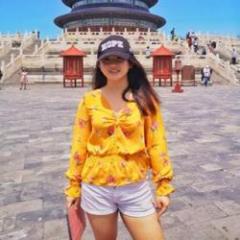
Is IB Mastery a trusted site?
I'm confused as to what I'm supposed to do with my TOK Essay and searched up some sites that could help me with it. I came across this site called IB Mastery, a Tim Woods blog or something and it offers a TOK Essay Mastery Program. It only costs 14.99USD per month but I want to know if this is a sham or not. URL is attached below. https://checkout.newkajabi.com/offers/zR9YEFEU/checkout?checkout_token=eyJ0eXAiOiJKV1QiLCJhbGciOiJIUzI1NiJ9.eyJvZmZlcl90b2tlbiI6InpSOVlFRkVVIiwic2l0ZV9wcm90b2NvbCI6Imh0dHBzOi8vIiwicGVyZm9ybV9sb2dvdXQiOnRydWUsImV4cCI6MTQ3NjYxOTkwNn0.VOtCRLnjEiNgGrHikX5LsGKS2XsNtHpYW8faSlSpgTs
- websitereview
Ethics of Studies
What are some studies or experiments that could not be held due to ethical considerations
Presentation TOK video games presentation
Hi, i have my TOK presentation coming up soon, and i decided to do mine on are video games useful for society? I know that video games can promote violence, and i also know it can help people improve eye to hand coordination, etc... The only problem is i don't know how i should outline mine. My teacher said i should start with a situation and then state my knowledge issue, but after that, i am lost. I don't know what should go next. Should i describe what we mean by violent, is this presentation biased, etc... Please help me.

TOK presentation with an RLS of Euthanasia
I have my final TOK presentation next week and I am struggling a bit on an outline(what to talk about) for my TOK presentation. My knowledge question is: "How can we trust ethical decisions?" - with an RLS on euthanasia Was wondering if anyone has ideas on how I could outline my presentation? What I could talk about, in terms of claims and counterclaims? Thanks x

tok exhibition (m22)
hey i have to submit my final tok exhibition tomorrow and i still haven't started it. the prompt ive chosen is either: "what constraints are there on the pursuit of knowledge" and i need 3 objects for this prompt. if you have any suggestions please let me know, you'd save my life by helping me. thank you so much:) also can anyone please send me samples of their exhibition commentaries, it would help a lot as my final exhibition is coming up and i really need help.

TOK presentation help!
hey, so I have to find the topic, main RLS and KQ for my TOK presentation, but I never had any idea what was going on in TOK classes 🙃 so I really need some help!! I thought I could do something connecetd with medical ethics, but since I don't want it to be too common and generic, preferably something else than designer babies/stem cell research, euthanasia and abortion. do you have any ideas what this could be? my other idea would be something connected with maths, like I thought of, very vaguely, maths in nature - so about Golden Ratio, Fibonacci Sequence, Sequences and Series for example in petals of flowers and so on. obviously I can consider something…

- TOK presentation
- tok presentation help
- Presentation
If i use magic tricks as my real life situation, what can be my counterclaim?
For my TOK essay, I considered magic trick to be something deceptive but I really don't know what counterclaim should i use for this. If anyone could give me some ideas i will be really appreciate.

How is a plagiarism check done for the TOK presentation?
How does the school or IBO carry out a plagiarism check for the TOK presentation?

TOK Prompt: What counts as a good justification for a claim?
Hi guys! So TOK Exhibition is coming up and I chose the IA prompt stated in the title. Just to have a different opinion, how do I really answer this? What should the justification for this prompt should be like? What does the flow for my commentary should look like? I knew I chose a hard question and I also think I chose the wrong object for this also, which means that I cannot (I have no idea, honestly) link my object to the IA Prompt. Another thing: One of the object is a quote/small passage from a book. Does anyone have any idea how to link them? Sincerely, a struggling IB student

Secondary Question
How do I formulate a correct secondary question for TOK? I came up with like 1000 questions but all of them according to my teacher are primary- questions and not suitable for journals. PLease help😪
HELPPP please! TOK presentation
Hello everyone, Me and my partner have around a week to finish our TOK presentation, but our teacher keeps saying that you KQ is not very "Tok"... Can you please help us with a moe Tok KQ??? This is our KQ: To what extent do teenagers have the knowledge to manage their privacy in order to achieve security in social media?
ToK Plagiarism Help
As i previously mentioned, i forgot to quote and reference one sentence. .. will i be accused of plagiarism and not get my diploma?
Is this a good investigation for a TOK presentation, “How reliable are scientific instruments in determining accurate results?”
Hello there, I have a TOK presentation topic that might be good and is related to a RLS, however, I don’t know if the question is too vague. The RLS is finding the oldest material on earth with the usage of spectrometry and so how accurate are these findings in giving us how old is the material. However if it is not vague, I have no clue, should I include Knowledge claims that are only about spectrometry or can I talk about scientific instruments in general? Please let me know what you think.
adverts in TOK - which AOK?
Hey! That seems like a totally random question, but it is urgently needed for my TOK essay. One of the RLSs I wanted to use is an advert which uses a statistic and I don't know which AOK it should be classified upon. Could it be the arts? (because it's like a visual advert) Or can it be classified as any of the AOKs? Would be really grateful for help!! Thank you!
TOK Essay May 2021 title
Hello! For my TOK Essay I chose this title "Statistics conceal as much as they reveal." I was thinking about approaching it from the AOKs of History and IKS. I am not very sure about what exactly I want to right or how I want to approach this title. Any thoughts, suggestions, links, or comments will be much appreciated. Anything will help. Thank you
Tok KQ Help pleases I would appreciate
I have my TOK Presentation next week and I need to have a knowledge question today. My topic and RLS is about euthanesia, any suggestion for the main knowledge question ? Thanks a lot to everyone for reading and helping <3
Mini TOK Exhibition
Hi y'all, I have a mini TOK exhibition for which I need to choose ONE object (from the attached list) that answers ONE of the 35 prompt questions (attached below). Any suggestions for which prompt or object I should choose or any advice for the same? Thanks in advance! TOK Exhibition Details.pdf 2.3 Creating the BQ2 exhibition (student handout 3) .pdf
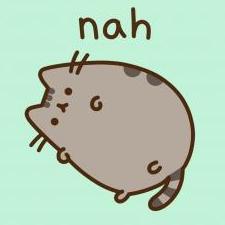
I don't know how to answer my question for my ToK presentation
So my question is "to what extent are assumptions affected by intuition and language?". My RLS is Piliavin et al's subway study, and I was thinking of mention how our intuition can sometimes influence what we assume about others, as well that body language can also influence our first assumption as well. However, I feel like these things are too specific and I'm unsure how to continue. Please help!
I need HELP with my TOK presentation
I need help with my knowledge question on government censorship. My question is: "What role does authority play in shaping shared knowledge?" Is it good enough?I will use the real-life example of China censorship. I'm also having trouble coming up with goods developments, counter-arguments, and rebuttals. Can anyone help me please? It will be very meaningful for me.
- Tok presentation
TOK presentation KQ help :)
Hey guys, I'm working on my tok presentation with my partner but we are really struggling with coming up with a proper KQ that focuses on knowledge. our RLS is the Netflix series "Conversations with a Killer: the Ted Bundy tapes". The show revolves around audio recordings of interviews with serial killer Ted Bundy and interviews with people that were associated with him (family, friends, and surviving victims). our initial KQ was "To what extent are one’s decisions influenced by emotions and memory?" and then it was updated to "To what extent can psychological classifications be used to rationalize unethical behavior driven by emotion?" but we were told to change it …
TOK - Computational Creativity
I have to complete my final TOK presentations and I am interested in Artificial Intelligence. I have finalised my topic as Computational Creativity. But I am confused about my RQ. "To what extent can the art made by AI be considered creativity?" Is this doable?

Implications in TOK Essay
I'm writing a practice TOK essay and am struggling pretty badly with implications. Would someone be willing to explain how to draw implications or provide some sort of direction? Thanks in advance!
TK/PPD form
Hello, I am currently doing a practice TK/PPD form about stem cells. I have chosen a case study as an RLS, is this a valid rls even if it was a made up case study created by a university? here is a link to it https://sciencecases.lib.buffalo.edu/files/stem_cells_therapy.pdf I want to focus on how ethical vs scientific reasonings are established and link it to religion/faith and the scientific method. I am aware I must link it to a model of knowledge such as pragmatism. Here are some possible claims; scientific progress must be aligned with social need the interface of science and society includes ethical focus the use of stem cells ha…
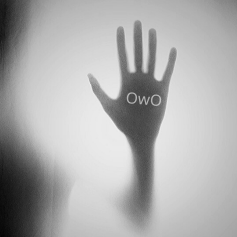
Veganism KQ ?
I wanted to do something about veganism , but can't figure out a proper KQ for the topic , can someone give me some rough ideas for good KQ's?

TK/PPT Form
Hey guys! I am having trouble fitting my entire tok presentation in only 500 words in the tok form. Any recommendation on how to reduce word count or how to make it fit that little box they give us? And does the word count really matter? Thank you!
ToK Presentation Help
Hi, So I got a knowledge question: How do emotions help or hinder our understanding of the correlation? But don't know for what to use for my rls!!! help!
Tok question help
Hello can anyone let me know if this would be a suitable question for TOK presentation? "To what extent are doctors responsible for patients becoming dependent on their Prescription medication?" I was thinking emotion, reason and natural sciences for WOK. And using Ant McPartlin as a RLS. Or maybe "to what extent does social media influence the way we exercise?" I think many WOK would apply here. I am so confused by the whole TOK presentation and worrying about so much. Once I get a question I am sure I will be ok, just really appreciate any help. I have no teacher as I am in lock down! Thank you all
TOK topic on Racism
Hey guys Me and my partner is doing a presentation on racism and was wondering if the knowledge issue of perception would be a good idea. What we were thinking of doing was first start off with showing the class 3 power point slides, each showing a yellow, white and black person. Then I will blind fold them and let them tell me which race I just showed onto the screen. This will first draw the attention of the class and raise the issue that racism would have not existed if we had no sight. Then me and my partner don't know how we can move on from there and was wondering if you guys would help us plan what we should bring up in our presentation. Thanks loads! noah and cl…
.thumb.png.af170d02e7328c7c899ea15b1a268c8d.png)
TOK Prsentation: What is a good KQ?
Hello Would someone be able to give me guidance if this a good TOK KQ: Should we trust international NGOs? Basically for my presentation, I'm interested in challenging the blind assumption that International NGOs are always doing good work (e.g. Amnesty International, Oxfam, Doctors Without Borders, etc.) Any guidance will be much appreciated!
- knowleggequestion
- tokpresentation

Presentation Interesting Topics
- 122.7k views
Well its that time of year again, and TOK classes everywhere are working on the dreaded TOK presentation. The very purpose of the TOK presentation has been mocked by the long list of botched presentations (including but not limited to: poor raps, random video clips, insufficient, unprepared rambling, and interpretive dance... yes, it happens), but enough about those. I want to hear about the great TOK presentations that really just made you think about something in a way you haven't before. So far, my favorite TOK topic was one which compared Religiosity and the Gross Domestic Product of nations. They compared the cultures and how different cultures value different thin…
IMPLICATIONS - TOK TITLE 5 2020
HI GUYS, i was wondering if someone could guide me about implications for the TOK prescribed tittle “Given that every theory has its limitations, we need to retain a multiplicity of theories to understand the world.” Discuss this claim with reference to two areas of knowledge. THANKS!
For either TOK essay or presentation there's a sites that gives you a topic for the presentation, and a site which gives a full map for the Tok essay that includes claim, counter-claim, etc. The question is using these things in your work does it count as plagiarism even if it was created for you to use it?
- Existing user? Sign In
- Latest Activity
- Notes & Files
- Leaderboard
- Create New...

US IB Theory of Knowledge: TOK Exhibition Rubric
- Knowledge Framework in TOK
- TOK & The Learner Profile Attributes
- The Learner Profile Attributes Quiz
- Areas of Knowledge
- Optional Themes
- Knowledge Questions
- TOK Exhibition
- TOK Exhibition Prompts
- TOK Exhibition Rubric
- Ways of Knowing (Pre 2022)
- Recommended Reading
- RSS News Feeds

The markscheme for the TOK exhibition*

- << Previous: TOK Exhibition Prompts
- Next: Ways of Knowing (Pre 2022) >>
- Last Updated: Sep 23, 2022 1:19 PM
- URL: https://asmadrid.libguides.com/IBtheoryofknowledge

IMAGES
VIDEO
COMMENTS
Once you've grasped the essay rubric, and chosen your title, you can start planning and structuring your TOK essay. You base this around the 3 interactions with your teacher, which are one-on-one meetings discussing your progress, and receiving feedback. As well as the interactions, you can also ask your teacher specific questions about your ...
The TOK essay is a 1600 word essay written about topics usually given to students from their teachers from a list of numerous options. It is an essay that promotes arguments and counterarguments for the topic at hand. Understanding your ways of knowing (WOKs) and areas of knowledge (AOKs) is extremely crucial before you even start choosing a ...
Paragraph 1. - Say one or two interesting things about the prescribed title question. This shows us, right away that you know what the question is asking. - Define one or two of the key terms in the title. Get definitions for all of the main words in your title. You don't need to include all of them in your essay, but it's useful to see how ...
The International Baccalaureate Theory of Knowledge essay is a 750 to 1600 word requirement on the student's knowledge of the world, and how they analyze and evaluate it. The TOK essay structure is designed to help students express their ideas in an organized, concise and effective way.
Steps to Writing the TOK Essay. 1. Analyze the prescribed title. The first step is to fully understand the theory of knowledge questions being asked. The topic will include terms that will guide you in comparing and contrasting accordingly. 2. Choose the title. Choose a title that allows you to explore your interests.
Theory of knowledge (TOK) is assessed through an exhibition and a 1,600 word essay. It asks students to reflect on the nature of knowledge, and on how we know what we claim to know. TOK is part of the International Baccalaureate® (IB) Diploma Programme (DP) core, and is mandatory for all students. Learn more about theory of knowledge.
To what extent do you agree with this statement?". "There is no such thing as a neutral question. Evaluate this statement with reference to two areas of knowledge.". "'The task of history is the discovering of the constant and universal principles of human nature.'. To what extent are history and one other area of knowledge successful ...
In order to excel in writing a successful TOK (Theory of Knowledge) essay one needs a clear understanding of the assessment criteria. In this article, we will explore the key aspects that examiners consider when evaluating TOK essays. Understanding these criteria will enable you to write a well-structured and insightful essay that demonstrates ...
The TOK essay is an opportunity for students to engage in a formal, sustained piece of writing in response ... These levels are to be seen as holistic descriptors rather than as a checklist of characteristics. Does the student provide a clear, coherent and critical exploration of the essay title? ... 48 Theory of knowledge guide. Created Date ...
10 TOK essay starting points. 1 The TOK essay is an individual task. 2 It represents two thirds of the overall mark for TOK. 3 It is externally marked. 4 You choose your title from a list of six prescribed titles, which change every exam session. 5 The word count for the essay is 1600 words.
Diploma Programme Theory of knowledge guide. The International Baccalaureate Organization (known as the IB) offers four high-quality and challenging educational programmes for a worldwide community of schools, aiming to create a better, more peaceful world. This publication is one of a range of materials produced to support these programmes.
1) Make your introduction clear; lay out a roadmap of wear you plan to take the reader in your argument. Sometimes, restating the title (especially if it is short) in the introduction focuses the readers thinking, so consider do this. 2) Include a counter-argument in the opening paragraph specifically, and ideally, consider counter-arguments ...
2. Understanding perspectives. Your TOK essay should show a clear awareness of different points of view, and should offer an evaluation of them. This means considering how different perspective might approach the question in different ways. 3. Offering an effective argument. The arguments within your TOK essay are clear and coherent, and are ...
Discuss with reference to two areas of knowledge. TOK Essay B. High scoring IB Theory of Knowledge Essay examples. See what past students did and make your TOK Essay perfect by learning from examiner commented examples!
As of 2014, a student who scores an E on either the extended essay or TOK essay will not be eligible to receive an IB Diploma. Prior to the class of 2010, a Diploma candidate could receive a failing grade in either the Extended Essay or Theory of Knowledge and still be awarded a Diploma, but this is no longer true.
Examiners are kindly requested to keep the following points in mind: 1. While there may be good reasons for examiners to consult these notes during the actual marking of essays, it is vital that they resist any temptation to treat the points they contain as if they constituted. a "checklist" of what is expected. 2.
Here is a short checklist of points to watch out for when writing the TOK Essay. Over the years I have proof-read uncountable essays, and there are often similar issues that appear. Many of these issues are addressed below: Introduction: You must give it a clear introduction that allows the reader to understand in which direction the essay is ...
The IA prompts are a set of 35 high-level knowledge questions. Students must select one of the following IA prompts on which to base their exhibition, and all three objects must be linked to the same prompt. These IA prompts apply for all examination sessions for the life of this guide—they do not change from session to session.
Check out our three-minute explainer video on the TOK essay here. The video goes over the basics of the TOK essay, such as how it's assessed, the word count and other practical details, terms such as 'perspectives' and 'implications', and the role of real-world examples in justifying claims and arguments. You'll find more videos on ...
Write (or better-yet paste) the prompt you chose at the top of the document, in bold and centred. Make sure it is exactly the same as it is written in the guide and include the prompt number with it. ( Here is the list .) It is also recommended to include the word count, just after or under the title. For example: "1.
For TOK Coordinators via Year Groups > Theory of Knowledge. As a TOK Coordinator, you can review the status of all students via Year Groups > Select a Year Group > TOK Exhibition/ TOK Essay. Here you will find the TOK rosters. The default Prompt or Prescribed Title view displays a list of the students assigned by Advisor with their Prompt and ...
ToK Presentation Guide by Keel 2. How to pick your TOK presentation title by Sandwich 3. Past TOK Presentations - what people chose ToK Presentation Guide Knowledge Issues 'Knowledge issue' i.e. issues about knowledge. It would be appropriate here to consider what ToK is all about. Many naturally assume that anything philosophically based is ToK.
Tags: Areas of Knowledge, Core Themes, Exhibition Prompts, Exhibitions, Knowledge Questions, Learner Profile Attributes, Optional Themes, TOK Essay, Ways of Knowing American School of Madrid │ Calle America 3 │ Pozuelo de Alarcon │ 28224 Madrid